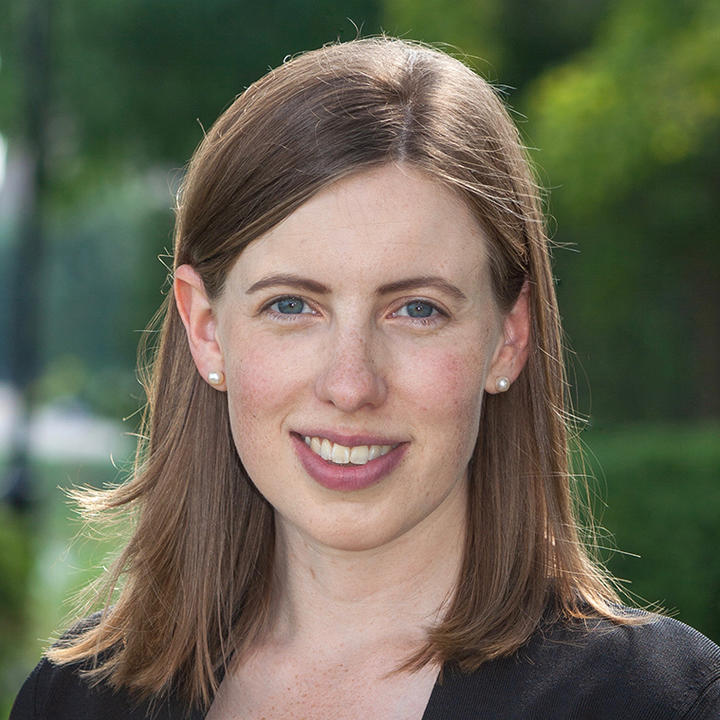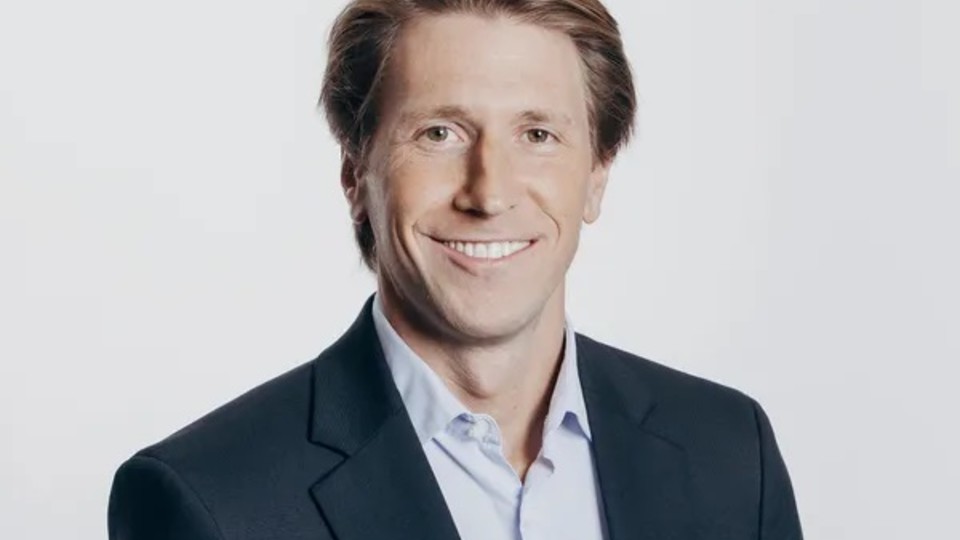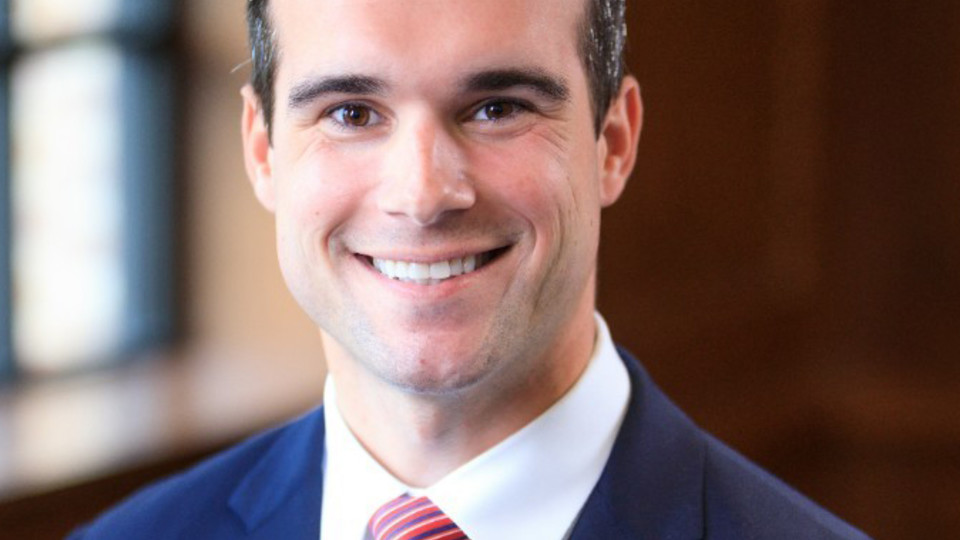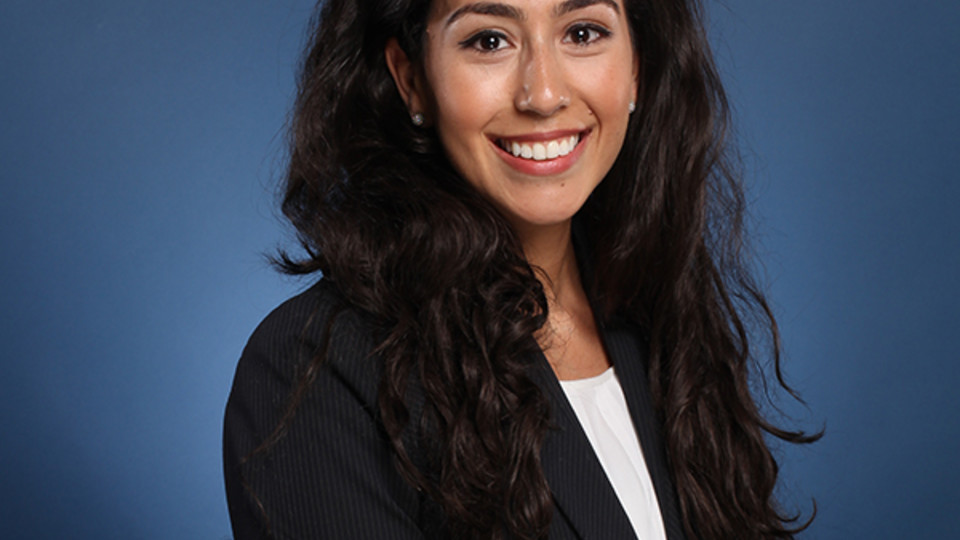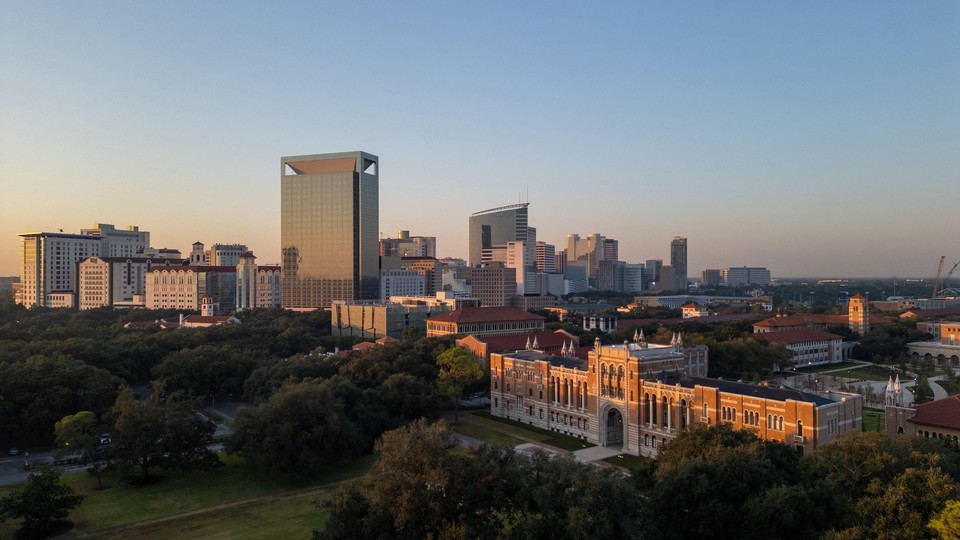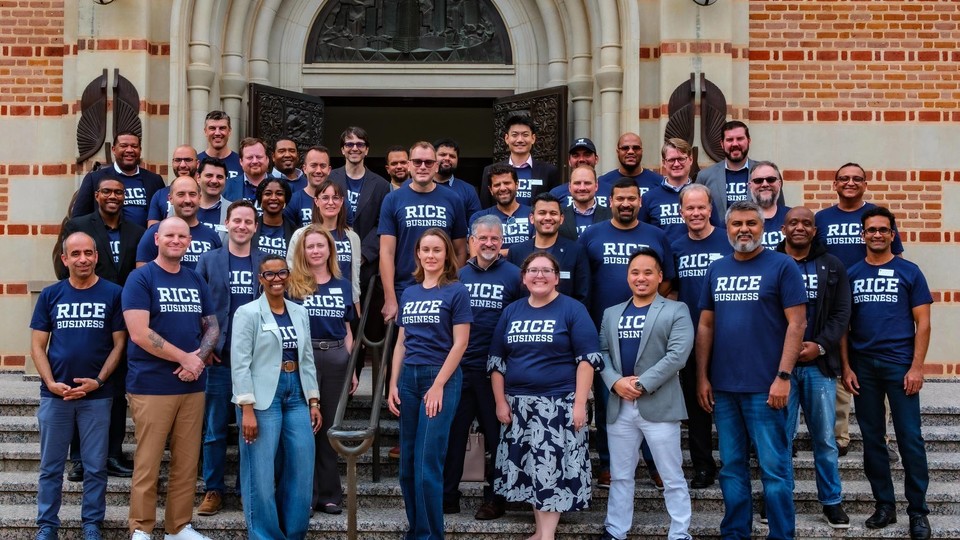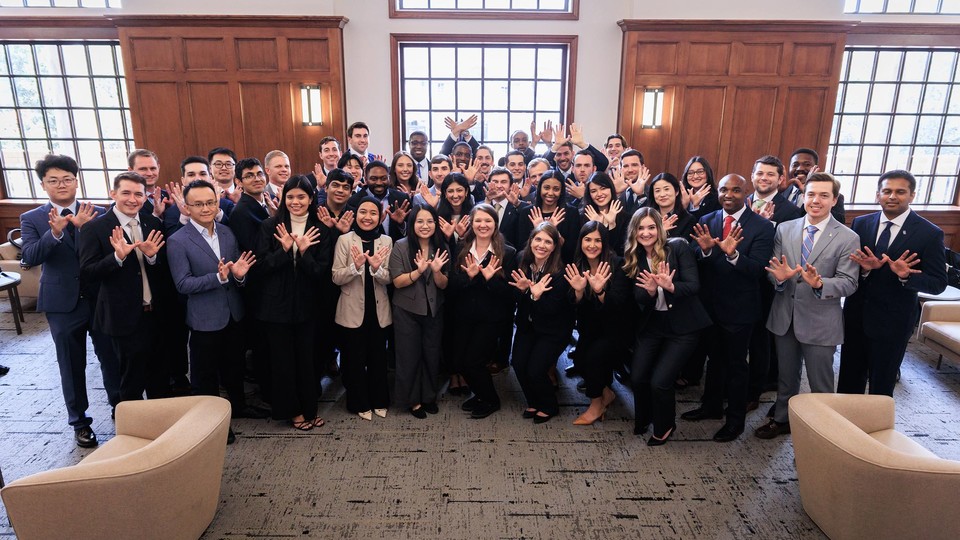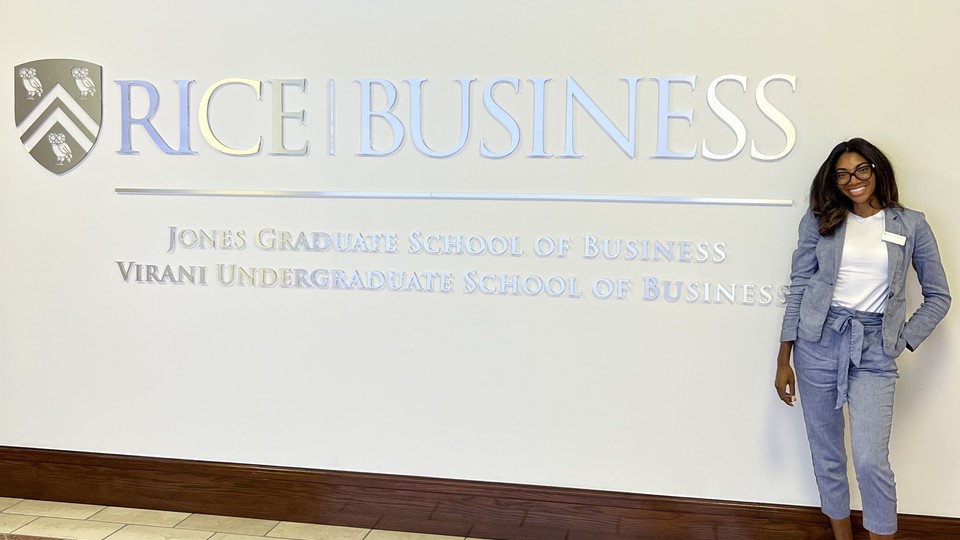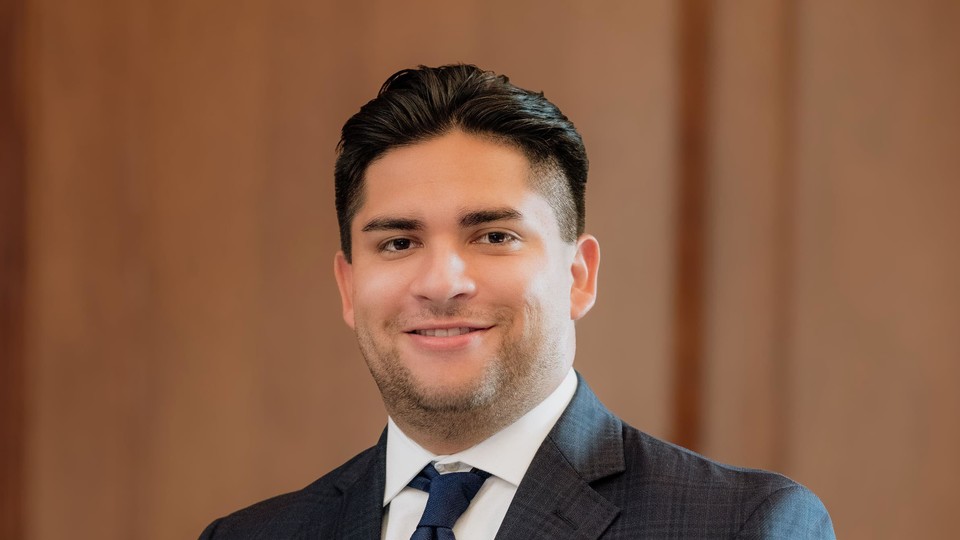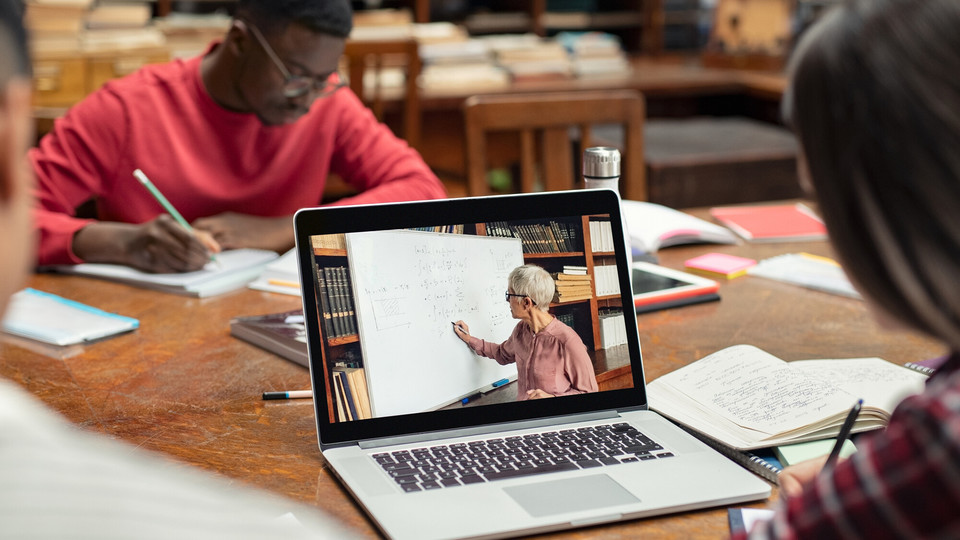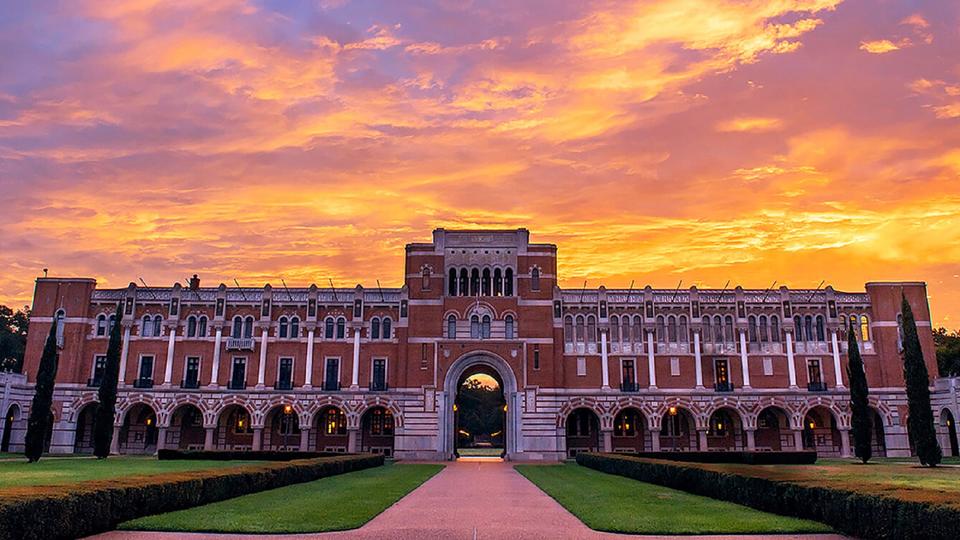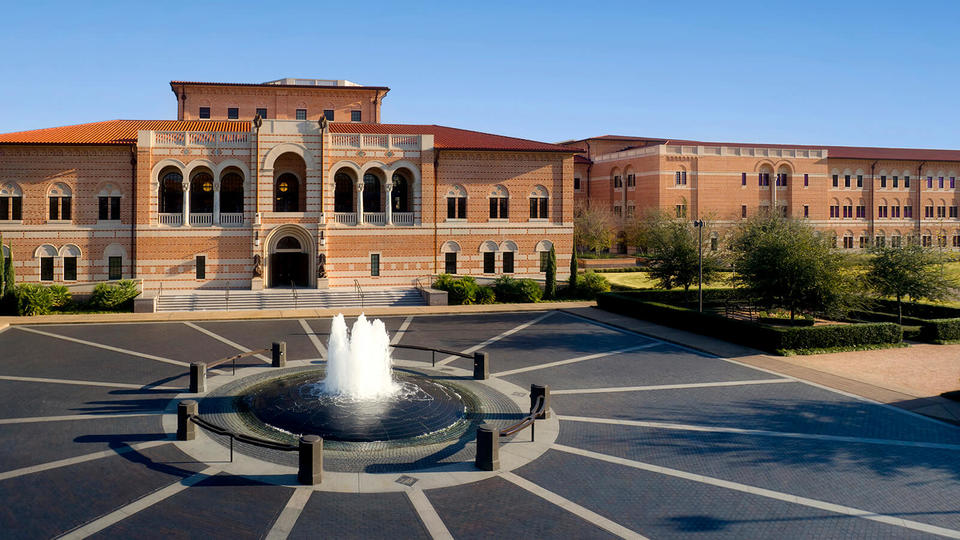Here’s how automatic credit card payments could backfire
A popular way to help people with their finances is by gently prodding them to make better decisions. These nudges appear to work at first, but several studies, including one co-authored by Rice Business professor Benedict Guttman-Kenney, show that some aren't as effective as promised and can even lead to harmful outcomes.

An Investment Strategy With High Returns: Stockpiling Household Goods
By leveraging sales, coupons and bulk purchases, many households can achieve returns that match or even surpass traditional investments.


Based on research by Stephanie Johnson (Rice Business), Scott Baker (Northwestern) and Lorenz Kueng (Swiss Finance Institute)
Key findings:
- Strategic shopping methods like buying in bulk, using coupons and timing purchases to sales can offer higher returns than the stock market.
- Household goods are an overlooked form of wealth, especially for low-income households.
- Having cash on hand allows households to seize discount opportunities, making stockpiling a practical and nearly risk-free investment strategy.
As anyone who has visited a Target, Bath & Body Works, or Walmart Supercenter during a Black Friday sale can tell you, just about everyone loves a deal.
That behavior sits at the center of new research on how consumers think about prices, timing and value. It turns out, those carts stacked with discounted cleaning supplies and bulk toilet paper are more than just obstacles in a crowded parking lot. Stockpiling household goods is a strategy that shoppers can use to keep their overall spending low.
Research by Stephanie Johnson, Rice Business assistant professor of finance, shows that sales, coupons and bulk purchases allow households to achieve returns exceeding 30%. For households that stock up on goods at the right price, the gains can add up quickly. These benefits are substantial enough to encourage people to keep more liquid assets, like cash, on hand to take advantage of discount opportunities as they come up.
On average, households hold about $725 of consumer goods. For low-income households, these goods make up a large part of their wealth.
“A large number of American households have very limited financial assets, but all households have at least some consumer goods,” says Johnson. “You can stock up on things like dry grocery and frozen items, cleaning products or canned food and to a lesser extent, yogurt, cheese or eggs. The items that you have in your fridge or in your pantry can be a significant form of wealth that is not captured in widely used measures.”
Traditionally, wealth is calculated by adding up the total value of assets such as real estate, savings and equities like stocks. But that calculation fails to capture what’s in a household’s cupboards. For those in the lowest quintile of annual household income — less than $22,000 per year — these goods are a significant form of wealth and likely the most effective way for them to generate returns with their money.
In an article co-authored with Scott Baker (Northwestern) and Lorenz Kueng (Swiss Finance Institute), Johnson analyzes extensive data on consumption and consumer finances, including price scanner data from NielsenIQ and data from the Federal Reserve’s Survey of Consumer Finances. The results of her model show two distinct strategies that can be effective at helping shoppers save: buying in bulk and stockpiling in response to temporary sales.
“When households take less frequent shopping trips but buy more on each trip, they can save in two ways,” says Johnson. “Because they are making fewer trips, their travel costs and cost of time are lower, and because they are buying goods in bulk their cost per unit is lower too.”
“The items that you have in your fridge or in your pantry can be a significant form of wealth that is not captured in widely used measures.”
But for certain products, bulk pack sizes may be best suited to people who consume a lot of that thing, such as large families. For most people, a gallon of pasta sauce will spoil long before it has been fully consumed.
“In contrast, if you buy many smaller bottles of pasta sauce when they are on sale, you can get similar savings, but you also get more flexibility in how they are consumed.”
Strategic shopping offers significant returns. While these returns are similar across income levels, the benefits are greatest for the lowest-income households because household goods make up a larger portion of their overall assets. However, to buy large packs or capitalize on temporary deals, you need to have the necessary working capital — such as cash or cash equivalents like lines of credit.
Johnson likens the savings achieved from strategic shopping behavior to the interest earned in a savings account, but at an average of 54% for the typical working capital investment, the returns far outpace any interest you could earn. The amount is also far higher than the average annual returns of 8% achieved by the S&P 500, a stock market index that tracks five hundred of the largest companies in the United States.
These returns motivate households to keep extra cash on hand, beyond what they might need for emergencies. This could help explain why some people choose not to invest in the stock market. For those with only a few hundred dollars, investing in household goods may make more sense than investing in stocks.
While stock market investments always carry inherent risks, the returns from buying discounted products are known at the time of purchase and are nearly guaranteed. However, unlike a savings account, the returns decline with the amount invested.
“Returns are ultimately limited by how much households actually consume,” Johnson says. “Keeping some extra cash available as working capital can be a rational choice for many households. This allows them to take advantage of deals or buy their favorite products in bulk. What’s important to understand is these physical goods are also a form of wealth. Even if they cannot easily be resold, households can reduce spending in times of financial distress by drawing from their stockpile.”
Johnson, et al (2024). “Financial Returns to Household Inventory Management.” Journal of Financial Economics.
Never Miss A Story
You May Also Like
Keep Exploring
Change Is The Only Constant feat. Pooja Talreja ’08
Season 4, Episode 24
Pooja, SVP of people at Ironclad Environmental Solutions, chats about her journey of resilience, bold career shifts, building strength through every challenge, and how we learn more from our failures than our successes.
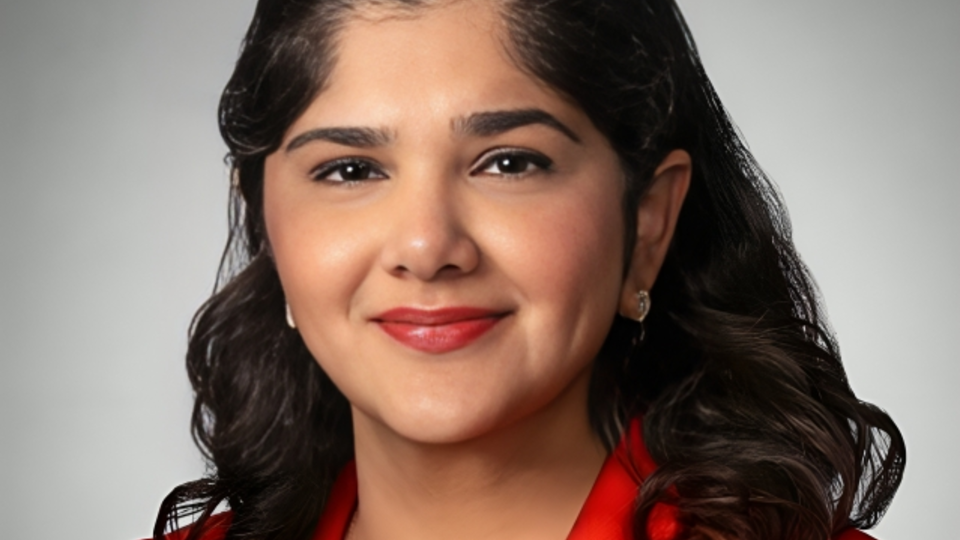
Owl Have You Know
Season 4, Episode 24
From Dubai to Houston, Pooja Talreja’s journey is one of resilience, growth, and discovery. Her story is about more than just crossing continents — it's about breaking through personal and professional barriers to find her true passion.
After a pivot from accounting to HR, Pooja is now the senior vice president of people at Ironclad Environmental Solutions, with 15 years of experience leading global teams in the oil and gas industry. In this episode, Pooja joins host Maya Pomroy ’22 to share her experiences, from growing up in Dubai to navigating life in the U.S. and making bold career moves. She offers invaluable insights on the importance of lifelong learning and how to lead through corporate transformation.
Subscribe to Owl Have You Know on Apple Podcasts, Spotify, Youtube or wherever you find your favorite podcasts.
Episode Transcript
-
[00:00]Maya: Welcome to Owl Have You Know, a podcast from Rice Business. This episode is part of our Pivot Series, where guests share stories of transformation in their lives and careers.
On today's episode of Owl Have You Know, we catch up with a Full-Time MBA who embraces change as a way of life. Pooja Talreja traveled from the opposite side of the globe for an education. Her journey to find true fulfillment in her career led her to Rice, which changed the trajectory of her life.
She talks with us about her upbringing, her career pivot, and how the gift of mentorship has shaped her, and how now she is able to pay it forward.
Welcome to Owl Have You Know. I'm your host, Maya Pomroy. Pooja, thank you for being on the program today.
[00:47]Pooja: Thank you for having me. I'm excited to be here.
[00:49]Maya: We are very excited as well. So, you are the senior vice president of people at Ironclad Environmental Solutions. You've got 15 years of experience, guiding global teams across the oil and gas industry. And currently, you've pivoted from an accounting background to HR. So, we're going to get into that. You also grew up in Dubai and decided to come to the States for your education. So, tell me about what your childhood was like in Dubai.
[01:24]Pooja: Born and raised there, Dubai, I don't know if you know this, has a very big Indian community. So, it was home away from home. Summers were in India with grandparents. Growing up was with an Indian community, English speaking, so the move to the U.S. wasn't that tough. I would call it a very sheltered upbringing, to be honest.
[01:44]Maya: Could you describe that? Because I've never been to Dubai. I mean, it's on my list, but I've never been. So, curious about your thoughts on that.
[01:52]Pooja: Middle class families in Dubai can afford a nanny. That's something that is unheard of here. We grew up with a live-in nanny. Both my parents worked and we were lower to middle class, right? So, when I say sheltered, we had an excellent support system at home with family, with friends, strong sense of community. Moving to the U.S. was actually the hardest thing I've done because it's leaving that community behind and then building your life from the ground up. And frankly, as a mom, I want that for my kids.
[02:25]Maya: Sure.
[02:25]Pooja: As hard as it is to let your kids go fly, it's what helped me learn so much about myself. It's just… it was an amazing experience.
[02:34]Maya: So, what are some of the things that you've learned?
[02:38]Pooja: Oh, my gosh. I used to think of myself as a very shy person. Confidence was always an issue, growing up. But moving here, I learned that, when put in a tough situation, I'm going to try and figure it out, right? I'm a figure-it-outer. I just like to get shit done.
[02:56]Maya: Problem solver.
[02:57]Pooja: Problem solver. That, I didn't know I had it in me till I was put in this situation to do that. And I think that goes for a lot of women, in general. I don't think we give ourselves enough credit. We don't always come into situations with full confidence. But the more we have that experience of, “I got this,” that builds competence, right? And that builds your confidence, in turn.
[03:20]Maya: Let's talk about that, of being a woman, growing up in Dubai, and then coming to the United States. Culturally, from India to Dubai is a shift, but I think from India to Dubai to the U.S. is even a greater shift.
[03:37]Pooja: I'll never forget that plane ride. I cried myself to sleep. I was by myself.
[03:42]Maya: How old were you?
[03:45]Pooja: 20? It was in the middle of college because I transferred schools from Dubai to Florida. But I didn't think I was going to cry. I thought I was ready to be on my own.
[03:57]Maya: And you went to Florida Atlantic University. That's where you got your BBA in accounting.
[03:59]Pooja: That's where I got my bachelor's in accounting. And even though I had a couple of friends that were from Dubai that were at FAU, leaving your family and friends behind, and I'd been in Dubai my whole life, it just taught me resilience. It taught me grit. It taught me, even though I may, in the moment, think I don't have it, I can do it.
[04:20]Maya: So, you got off the plane. Did you just go to the dorm? How did that go?
[04:26]Pooja: So, I had a girlfriend that had an off-campus apartment. I just met her. She walked me around the school. I hadn't even toured the university, but I just applied and I transferred. So, it was my first time visiting. And again, right, very similar to growing up in Dubai, FAU has a really small Indian community. So, I don't know what it is. We just tend to gravitate towards each other.
[04:51]Maya: I think that's normal of everybody. We try to unlearn that, but I think that's just a natural instinct.
[04:57]Pooja: So true. Like minds and everything, right? But yeah, once I got over the fact that, “Hey, I'm here,” I have nobody to fall back on, my support system looks nothing like what it did back home, it was go-time.
[05:10]Maya: What made you want to come to the States?
[05:12]Pooja: Education, opportunity. And I will say, today, the opportunities in Dubai are very different for women. Growing up, there was one university. It was very new when I was ready to go to college. So, I had friends around me that were either moving back home to India or they were going to different schools in Europe or they were coming to the United States. Honestly, I liked what the U.S. offered in terms of opportunity, right? The sky's the limit. And at the time, I just thought, “I'm gonna go give it a shot.”
[05:43]Maya: Love that. That's true for so many that come to the U.S. for their education.
[05:50]Pooja: I drank the Kool-Aid, and here I am, my gosh, 24 years later.
[05:54]Maya: You know, that's also something to celebrate, 24 years. So, what made you interested in accounting? Was that something that was a family background? Were your parents in accounting? Or is that just something that, you know, you loved math and you gravitated towards?
[06:09]Pooja: It was my parents saying, “Accounting will give you stability in your career. So, go do that, or some sort of engineering degree or some kind of doctor,” which I sucked at science. Numbers came easily, so I picked that, right? There's a big difference in studying accounting and working in accounting, night and day.
[06:31]Maya: What's the difference?
[06:33]Pooja: The work, at least when I worked for CPA firms, was very redundant, right? It was the same work, checking other people's numbers, ticking and tying. Honestly, for me, it didn't offer the variety that now I know that HR does. Every day looks very different in HR. For accounting, it's predictable, right? You know what the day is going to bring, which wasn't for me. That just was not my calling.
[07:00]Maya: Yeah. Once you graduated with your BBA in accounting and you dipped your toe into the accounting sea, how long did it take you to realize that, “Maybe this is not really what I want to do with the rest of my life and it's time for me to shift?”
[07:18]Pooja: I would say three to four years. I mean, I knew initially, but I kept thinking it's going to get better, right?
[07:26]Maya: Don't we all?
[07:27]Pooja: It's not them. It's me. I'm good at this. Well, why can't I love it? In my mind, I couldn't make that distinction between having the skills and the ability, but also not having the passion for it, right?
[07:42]Maya: Yeah.
[07:42]Pooja: So, I actually quit my job at the public accounting firm that I was at. It's a local firm here in Houston. Literally, weeks after they promoted me.
[07:54]Maya: How’d that go?
[07:55]Pooja: You know, I will never forget the day – I walk into the partner's office and I said, “You have no idea how much I appreciate you taking a chance on me. You're giving me a larger role, a bigger responsibility, but I hate the job.”
[08:08]Maya: Oh, did you do that? Did you say, “I hate my job?”
[08:10]Pooja: I did. And, you know, he was… he's such an amazing person. He was open, always, to have that dialogue. And I think they saw, right, that I wasn't loving the work. So, I just told him, I said, “Look, I want to go back to school. I don't know what I will do with my life when I'm grown up, but it's not accounting, right? Being in your seat, bringing in business, it's all about the numbers just was not for me.” And honestly, he got it. He was supportive, right? Did they try and throw more money at me? Yes, but I think the person in him got that I was looking for something entirely different.
[08:45]Maya: Right. So, what year was this?
[08:48]Pooja: Oh, my gosh. 2006 was when I applied to Rice. So, it had to have been 2006, actually, because it was earlier that year and I applied in the same year, so ‘06.
[08:58]Maya: So, why did you decide… was it location, because you were in Houston? Is that why you applied to Rice Business?
[09:04]Pooja: Yep, it was the only school that I applied to. And I had friends that had either graduated from Rice or were still going there. So, there was, you know, an existing community, and they just spoke so highly of the program and everything that it exposed them to and everything that they learned, the professors, their cohorts. I just knew intuitively that this needs to be my next move.
[09:28]Maya: So, walk me through when you came on campus and you came to the business school for the first time. What did you think?
[09:35]Pooja: The imposter syndrome is so real, right? Like, how am I here? And the campus is so beautiful. And you have all of these extremely intelligent people. Frankly, I just remember feeling very grateful, right? Looking back at the decision to even move to the U.S. and complete my degree here and then having the courage to quit a very stable job, right, as they wanted to move me up, I was like, “Yeah, no thanks,” right? That just…
[10:08]Maya: Thanks, but no.
[10:09]Pooja: Thanks, but I need to try something for me. And frankly, having a spouse that was like, “Yeah, go back to school, quit your job,” not everybody has that, right? So, it was not lost on me that I was in a position of being set up for success and it was up to me to take that and make the best of it. But the early days were extremely intimidating. They have you present right off the bat, week one, orientation, and they record you, which is painful to see yourself in that recording. You're like, “I don't sound like me. I don't look like me. This is not okay.”
And then, of course, there was the whole airplane game. I don't know if y'all did that, but it was part of our initiation, which we didn't know at the time. But it's a game that's set up to essentially rag on us, right, just to make fun. And we took it very seriously, as first-years, that we need to win this game. It's an all day thing.
[11:07]Maya: No, we didn't play this game.
[11:09]Pooja: Oh, my god.
[11:10]Maya: I'm, kind of, disappointed. You have to tell me about the airplane game.
[11:12]Pooja: So, I don't remember exactly everything we did, but it's many series of games. You're set up in teams with your other first year cohorts. And the goal is to win every game, right? And then whoever wins the most gets the most points. Little did we know that it was… some of it was, like, childish, almost. Building an airplane, how far does it go? And we would get very technical with it, right? Like, put our engineering brains that I didn't even have. How do we do this? We just thought it was part of our success at school, which, no, no, it was all planned by second-years who were watching the fun at our expense. But then, you know, we got to... so, year two, we were like airplane game, let's make this happen.
[11:54]Maya: So, who won?
[11:56]Pooja: There is no winning, that's the whole thing. That was the whole thing. You're thinking, “Oh, my god, I'm in business school. It's all about winning.” No, that was the thing.
[12:05]Maya: It's all about losing. It's all about failing. That's a thread that goes through a lot of conversations, you know, with MBAs that I've had, is that you've got to learn how to fail because you can't succeed until you learn how to fail. Looking back, the amount of growth, I mean, it's been a little while since you graduated, but the amount of growth that you have in such a short period of time is really extraordinary.
[12:26]Pooja: It's remarkable. I remember telling my husband, “You need to enroll, you need to apply, you need to do this because this is game-changing stuff.” I was just so excited for the duration of those two years, you know. And you build lifelong friendships, including the networking with the professors and the Partios, all of it, right?
[12:49]Maya: Yes.
[12:49]Pooja: I look back at it, and I would do it again in a heartbeat.
[12:52]Maya: I told my husband the same thing. I was like, “You should really do this.” And he was like, “I'm not smart like you,” like, “Okay.”
[13:00]Pooja: It's funny how people think going back to school you have to be smart. For me, it's the love of learning, right? For me, it's learning about yourself, the education, the exposure to so many different courses and see what sticks. That was what it was about.
[13:14]Maya: And about taking a risk. Just the same way that you got on that airplane, you know, you got on that airplane, you took a risk, you came here. So, was it while you were at Rice that HR spoke to you, or people, the idea of inspiring and leading people?
[13:31]Pooja: 100%. It was one of the early classes, Organizational Behavior, with Professor Brent Smith. I went to him and I said, “How do I do this? I need to do these things we're learning in these case studies with Southwest and everything that you talk about, motivating people, leading people, but impacting the business through that.” And it was very simple, what he said, “Have you considered HR?” And I said, “No, I always thought my next move would be adjacent to accounting like finance or, maybe, something in operations. HR was not even on my radar.”
And that's why Brent, and Rice, overall, was such a big part of where I landed with my career because it taught me that you can be good at something and so find your calling. I didn't know that the two existed together.
[14:20]Maya: Well, that's what they say. They say, when you find something that you love to do, then it's not work.
[14:26]Pooja: Yep.
[14:26]Maya: And that's what I think the Holy Grail is, is to find what it is that you love to do that just comes so naturally to you, that you're like, “Wait a second, this is my job? Like, this is the best thing ever. How'd that happen?” And it takes people a little bit of time to get there.
[14:41]Pooja: For me, I was in my 30s, right? Friends around me were having kids, and here I was, back to school and so happy just to do it.
[14:51]Maya: So, Brent Smith was a very integral part of your transition. Have you talked to him since? Do you guys keep in touch?
[14:59]Pooja: We did, for a long time. I'll say, in the last three to four years, I will take full responsibility for the fact that I haven't really reached out to him.
[15:09]Maya: Well, you've been busy. You've had things to do.
[15:13]Pooja: Just a little. But I did. I had frequent lunches with him. I would talk to him about anything and everything. I've even been into, like, some of his classes because, you know, we can audit, right? In fact, I really want to do that again. It's just the coolest thing to be able to sit in there and hear the conversations that are happening, the things that he teaches. You always pick up on something new, no matter how many times you've been there. And he does these amazing leadership courses that…
[15:39]Maya: Executive leadership.
[15:41]Pooja: That's my calling. Like, that's going to be my next step.
[15:44]Maya: Well, you're going to have to, like, carve out that time because we don't ever have any sort of time that's just, like, sitting around. You know, it always, sort of, gets filled up with something. Always gets filled up.
[15:53]Pooja: You have to make the time. Well, I did just graduate, actually, a couple of weeks back, I was in the Wharton's program for CHRO.
[16:00]Maya: Oh, congratulations!
[16:02]Pooja: Thank you. So, that has taken 12 months. It was a great program, but yes, I'm going back to Rice, for sure.
[16:08]Maya: Well, see, that's the whole thing, is that lifelong learning, as you mentioned, is key. And I'm actually auditing a class in the fall at Rice as well.
[16:15]Pooja: Which one?
[16:17]Maya: Portfolio management. And I had been thinking about it and thinking about it. And finally, I was like, “You know.” And it was… it's really funny because, you know, you graduate, you know, with an Executive MBA. And then I will tell you that, writing the email to the professor and asking, because you have to ask for permission, and I was so nervous. And my husband was like, “Why are you so scared of this?” I was like, “Well, what if he says no?”
[16:41]Pooja: Yep. I've been there.
[16:42]Maya: What if he says, I was like, “Why, why on earth?” But that's still something that you struggle with. And I'm like, “All right, I'm going to do this.” And I pushed that. And, of course, he was kindest and was like, “Absolutely looking forward to seeing you in class.” So, I'm auditing a class in the fall. And there's so many benefits to being a part of Rice and that opportunity to always be welcome to come back, and if you see that you have some gaps, or even if you want to pivot and you've already gone through the program, you have this opportunity to continue to grow and learn. And one of the things that I'm most looking forward to is, obviously, the lecture, but also, learning from the students that I'm going to be within that same room because you learn so much from each other.
[17:26]Pooja: I couldn't agree more. I could not agree more. I think that's why cohorts tend to become so close, right? The professor is teaching you so many different things, but to your point, there's equal amount of learning from the people that's sitting in that class and their experiences and failures and all of that. It's just an overall fantastic experience. And I miss it. I love being in a classroom.
[17:49]Maya: Yeah, that's something that you want to pass down to your kids and future generations. And I think that Rice is a place that you, kind of, never really want to leave.
[18:00]Pooja: I agree. I'm right there with you.
[18:04]Maya: So, tell me about your current position and your current role, because you went from leading the HR division to leading all of HR for the entire company. So, tell me what you're doing now.
[18:19]Pooja: So, let me, before I go into that, rewind three and a half years. I'd started the division HR leader with a company called WillScot Mobile Mini, publicly traded, WillScot had just acquired Mobile Mini. And as part of the interview, the head of the division had said to me, “Hey, it's very likely that, in a year or two, we're going to get sold.” He was very honest about it. “Could mean you're either going to have to go look for something else or you could be leading the department.”
[18:47]Maya: Those are very wide.
[18:49]Pooja: Extreme, very extreme options. And at the time, my other option was to go work for a hospital system, more stable, one of the biggest hospital systems here. And I picked this one. I think the pattern with my life is I always pick the riskier one, the riskier move.
[19:07]Maya: Love that.
[19:08]Pooja: Honestly, for me, it was about the people, too, right? I just felt like, “Go big or go home,” in a way. But also, I love the group of individuals and leaders that had interviewed me. We just got on right off the bat. So, a year and a half into that position, my CEO, now CEO, at the time, division lead calls me and says, “Okay, it's time. We're going to start presenting to different strategic companies and PE firms. It's time to sell.” Because he had gotten us to that point with Scot Mobile Mini. And so, as a division leadership team, we would go to the same conference room in Bank of America, every morning with the same breakfast, same people, same presentation. Eventually, we were bought by Kinderhook. That's the New York-based private equity firm that currently owns us.
And each of the division heads essentially got promoted, right, into being now VPs and leaders of our own departments. And we all had to build a function from scratch. And this was in October of ‘22. Since then, we've had two acquisitions. I can't even tell you how many reorganizations, restructuring, people that have left the organization, both voluntarily, involuntarily, new additions. Change is the only constant, right? That's been the journey. I say this: we are living and writing our case study every day.
[20:34]Maya: Huh! How do you get through that? I mean, yes, uncertainty is the only certainty in life, right? How do you figure out a way to stick to it?
[20:46]Pooja: For me, it was a lot to do with the people that I was doing this with. After every single presentation, we would go back to the hotel, hop on our computers, do what we needed to do from a day job perspective. And at dinner, I would constantly say this, as much work as this is, and it's going to be even more, if there's one set of people that I want to do it with, it's this group right here. We had this sense of camaraderie that was built, let's say, over the last couple of years, right, that just became stronger because we were spending so much time with each other. And it's beyond transition. I would say what we're going through now is transformation. And with transformation comes significant change.
I just feel like the learning is what keeps me going. It always has been my biggest driver. And I haven't stopped learning, not in any job. And when I did, I decided to pivot from accounting to HR because it was the same thing and I didn't feel like there was enough learning and growing. But that's what kept me going.
[21:52]Maya: Do you feel that learning and growing is one of the most important things in terms of being a strong leader?
[21:58]Pooja: One of, yes, absolutely.
[22:02]Maya: What are the others?
[22:06]Pooja: There’s so many, but I'll give you my favorites. For me, it's compassion. The way that I define HR is not your textbook HR. Really, I think of it as a Venn diagram. You've got your policies and compliance and legal things, but then you've got the other side, which is doing what's right for the people.
And when you can find what can work for both, that's where HR comes in. That's where the magic happens. That's how you build the right level of engagement and loyalty and motivate people, is when you find doing what's right for the people, but doing it in a way that's still ethical within your policy, within the laws and regulations. So, that's what I love about my job, is figuring out that sweet spot.
[22:47]Maya: What are the most challenging parts about your job?
[22:51]Pooja: The change. There's days, Maya, that you just take it as a gut punch, right? People, it's been a bit of a revolving door. And you need that, right? Some of the change is very healthy, you need it. But at a personal level, it can wear you down, 100%.
Also, the uncertainty. As much as I enjoy the change and the learning, it also brings with it a level of, “I don't know what's next.” And that can be scary, not knowing what tomorrow brings.
[23:23]Maya: But that got boring for you with accounting.
[23:25]Pooja: Exactly. So, this is the other extreme now, right? This is just the other extreme of it.
[23:30]Maya: Certainly.
[23:30]Pooja: You know, if you're not feeling that discomfort, also, you're not growing. And I say this to my kids all the time. You know that feeling that you have, like, “Oh, my God, I hate this so much,” it's because you're growing your muscles or you're building some sort of muscles along the way. And I recognize that that's what's causing the pain, is, “Oh, my god, I really don't know anything about this particular topic. I'm just going to have to lean in and dig in and learn it.”
[23:55]Maya: Yes. I tell my kids that, too, is, when you're stuck in that mud, you know that you’re going to get through that mud. And yeah, the mud is really, really hard to get through, but you have to. You've got to get through the mud in order to get to the other side of, you know, the beautiful, green valley. You know, it's what you got to do. And it's really hard to see, especially for kids, I think, to see the other side. And that's why it's really important to model that behavior for them.
[24:27]Pooja: There's a lot to be said for learning from failures, even more so than your successes.
[24:32]Maya: Yeah. So, what's next for you guys over there?
[24:36]Pooja: So, 2023 was all about acquisitions, right? Divested in October ’22. We bought a couple different companies last year. This year is all about becoming more stable as an organization. We've recently gone through a really big rework. And the idea there is to strengthen all of the corporate functions, strengthen our processes, strengthen the tools, the systems we have in place, strengthen our performance overall. And the goal is, of course, with any PE firm, to grow that bottom line and then to sell, right? So, that's going to be what's next in terms of the company.
[25:14]Maya: So, once that happens, because, yes, that's the natural progression, what are your hopes for yourself?
[25:21]Pooja: If I had a magic wand, I would do this all over again. Knowing what I know now, when you do a bit of a look-back, there's so many mistakes and there's so many good calls, too, on the other side of it. I could do this all over again and I would kill to do it all over again and again and again. I know, glutton for punishment, let's call it.
But professionally, it's been a really rewarding, I would say, last couple of years. It really puts you to the test when you're faced with so much uncertainty and, kind of, thrown in the fire a little bit, right?
[25:57]Maya: Yeah. Well, let’s talk about leadership a little bit because that's Professor Smith, you know, that's what he's known to be, best of the best, right? And organizational change and leadership and those sorts of things. So, what is your approach to coaching leaders?
[26:14]Pooja: So, to start with, I would say it's really important just to be true to yourself. Be authentic. Be who you are. Have extreme clarity in what you're saying and where you want to get to. Because if you're not clear, your team's not going to be clear. And then lead by example, show people what good looks like, and do it with compassion, empathy. But also, holding people to the right standards and to the highest standards, because you’re… I do the same for me. I do the same for my people. Accountability is extremely important. Do what you say, right?
I always feel like it's not rocket science. None of what I said is new. It's not profound. It's just, it's what you learn, I think. With your education and experience combined, you, kind of, carve out what works for you. And everything that I just described is, I would call that my own leadership style. Very vulnerable. I'm no different at work than I am at home. What you see is what you get. There's very little filters.
Also, very honest, right? If I bungled something, I will tell the team, “That was on me. I totally screwed that up. Let's move forward. Here's what I'm thinking in terms of damage control.” But the reverse is also true. If somebody screws something up, it's, “Hey, let's talk about it. What can we avoid… do to avoid it from happening again? And what can I do to support that next go-around so that the same failure or mistake doesn't happen again?”
[27:42]Maya: Right. So, if somebody is listening to this and they're where you were not that long ago and just don't feel that fire or that drive and are like, “You know, this is comfortable, but I'm just not sure,” what advice would you give them?
[28:00]Pooja: The advice I would give them is the advice that a really, really close friend to me gave me very recently. He had said, it's not about mental fortitude. I was like, “What?” He said, be your own best friend and give yourself advice, be kind to yourself, have self-love, and figure out what you want to do, which is very hard to do because you're so close to your own situation. So, it's hard to have that.
[28:29]Maya: Take a step back.
[28:30]Pooja: Take a step back and have that other mindset. But once you do that, it's amazing, the courage that you can build along the way.
[28:38]Maya: So, have the courage to step outside of that comfort zone. Love that.
[28:43]Pooja: It's never going to be the right time. You know, you said that earlier, like, just lean in. So, yeah, that's something, looking back, that I'm glad I did.
[28:52]Maya: For sure. If you don't take the risk, you don't get the reward.
[28:56]Pooja: Yep. And it may not always be the right call, and that's okay, right? Bumps and bruises and everything, learn from it, but move forward.
[29:05]Maya: It's helpful for folks to listen to these stories, because they're all so unique and similar in terms of just really having the faith and the drive and the vulnerability. Like you said, nobody likes to listen to themselves and nobody likes to see themselves. And yeah, those things are hard to do for me as well. But those are… that's how you stretch and that's how you grow. And that's what life is all about.
[29:33]Pooja: Yep, 100% agree.
[29:35]Maya: Well, Pooja, it's been a pleasure. Thank you for being on Owl Have You Know, and we look forward to seeing what the future holds for you.
[29:43]Pooja: Thank you. Thank you. I appreciate it.
[29:47]Maya: Thanks for listening. This has been Owl Have You Know, a production of Rice Business. You can find more information about our guests, hosts, and announcements on our website, business.rice.edu. Please subscribe and leave a rating wherever you find your favorite podcasts. We'd love to hear what you think. The hosts of Owl Have You Know are myself, Maya Pomroy, and Scott Gale.
You May Also Like
Voters’ ‘moral flexibility’ helps them defend politicians’ misinformation − if they believe the inaccurate info speaks to a larger truth
Research by Rice Business professor Minjae Kim shows voters often accept misinformation, valuing "moral truth" over facts if it aligns with their beliefs, revealing deep partisan moral flexibility.
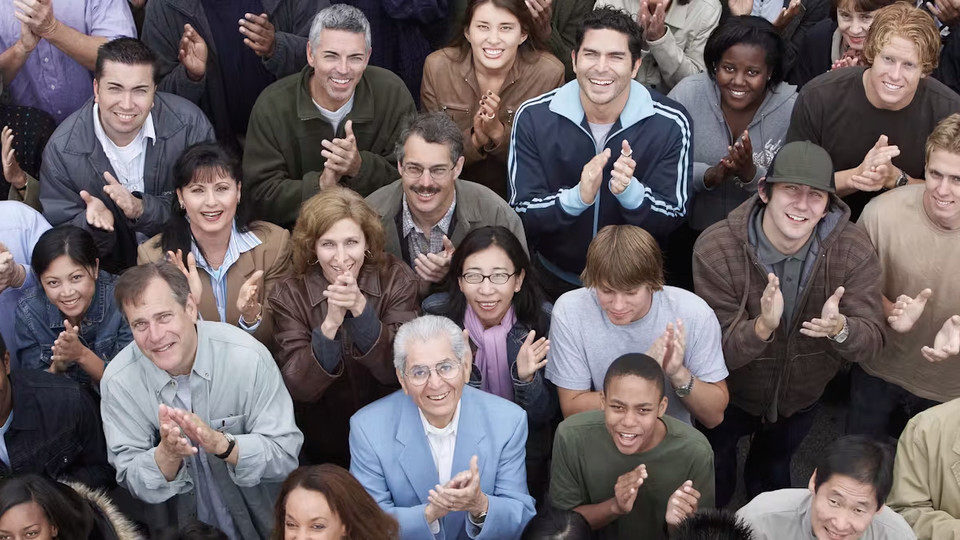
What Does It Mean To Be a “STEM-Certified” Program?
The STEM designation is one of the key reasons international students choose Rice Business.
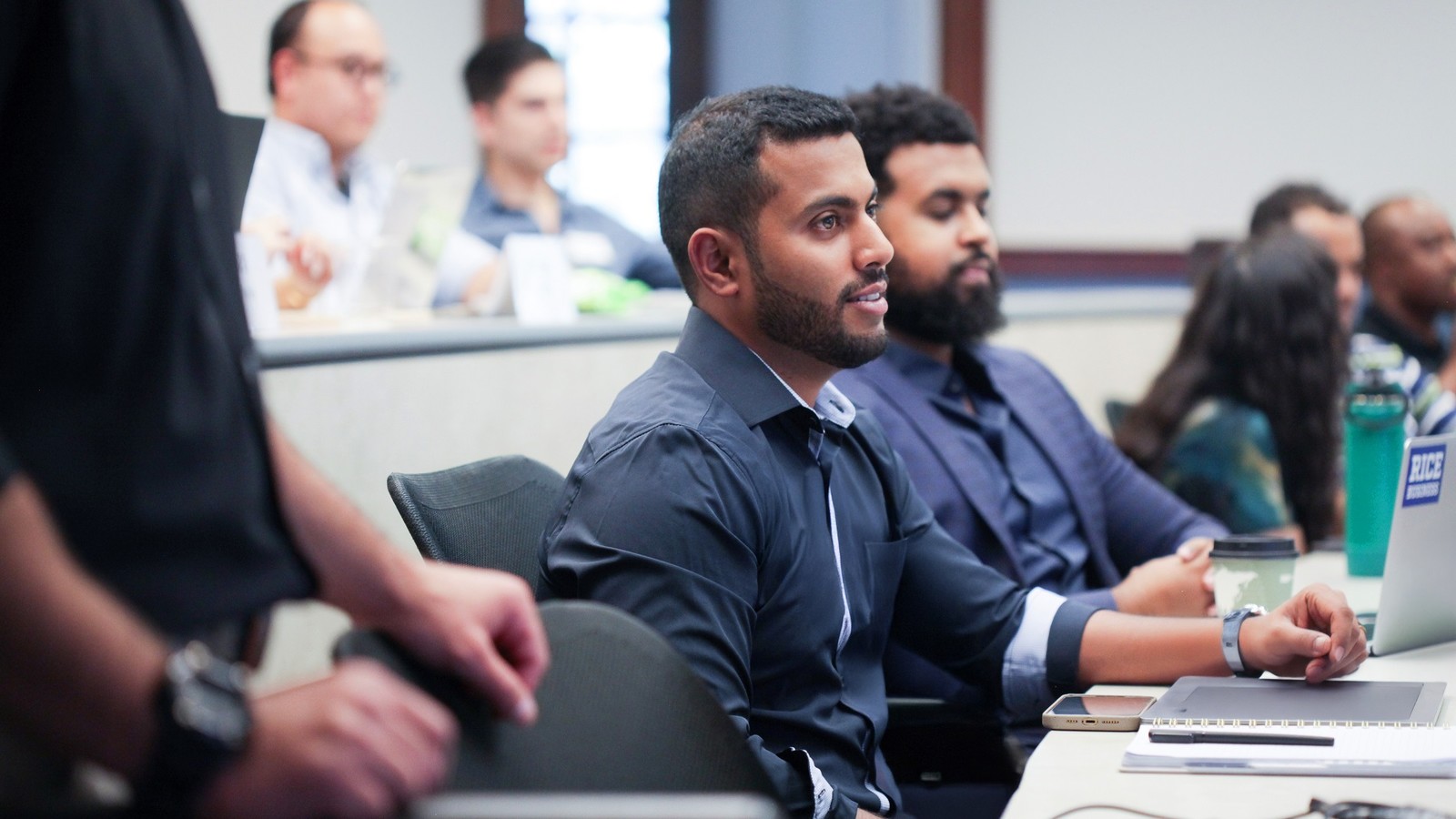
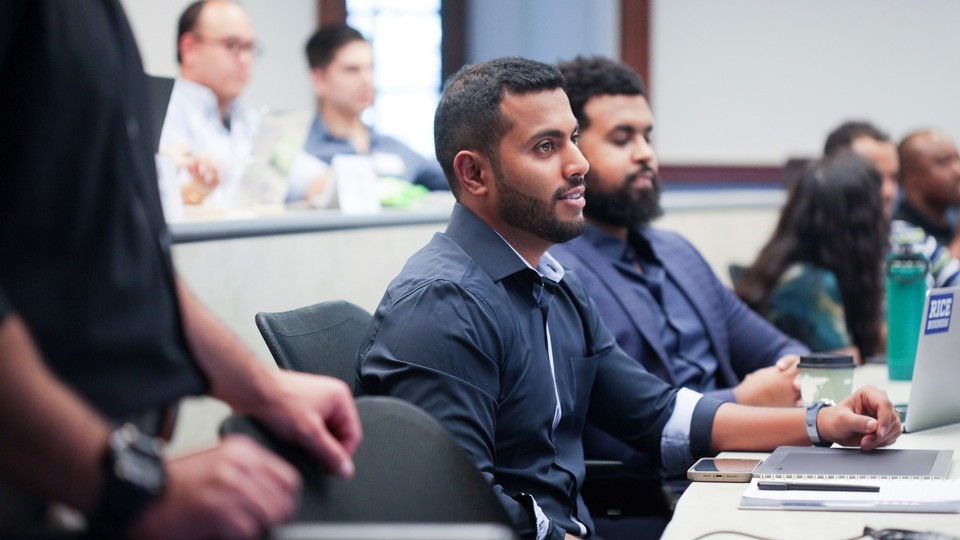
Our MBA graduates are known in the marketplace for broad problem-solving skills, reflecting a curriculum grounded in quantitative and data-analytic methodologies.
That’s why we’re a STEM-certified program. But what does this actually mean? And why is it important?
What is a STEM designation?
Being STEM-certified means we’re recognized by the U.S. Department of Homeland Security (DHS) as a program that emphasizes science, technology, engineering and mathematics.
For all of our students, this designation reflects a commitment to integrating cutting-edge technology and analytics into our business curriculum. We prepare students for the demands of today’s data-driven world.
But for international students, earning a degree from a STEM-certified program isn’t just about acquiring knowledge — it’s a crucial advantage in securing extended career opportunities in the United States. Being eligible for this extension means international students are permitted to work in the U.S. on their F-1 visas for up to three years after they graduate (as opposed to just one year).
Interested in Rice Business?
Why is it important?
This additional time is more than just a benefit for international students — it’s a game-changer. It gives them more time to build a robust professional network and gain real-world experience.
The presence of international students at Rice enriches our community, brings diverse perspectives and drives innovative thinking. It’s no wonder the Rice Around the World Partio is one of our most highly attended student events of the year.
Our diversity drives innovation and creativity, pushing boundaries and challenging conventional thinking. In this way, the STEM designation not only benefits our international students but also strengthens our entire academic community, preparing all our graduates to excel in a globalized economy.
How have we earned it?
Becoming STEM-certified is no small feat. It requires meeting stringent criteria set by DHS, ensuring that our curriculum is heavily grounded in technical and quantitative skills. At Rice Business, we’ve designed our programs to not only meet these requirements but to exceed them.
You May Also Like
Keep Exploring
Parool Didwania's Summer of AI at F5
Discover how Parool Didwania spent her summer as a technical program manager intern at F5. Learn how her MBA coursework and tech background helped her work on an AI implementation strategy within the Secured Distributed Cloud unit.

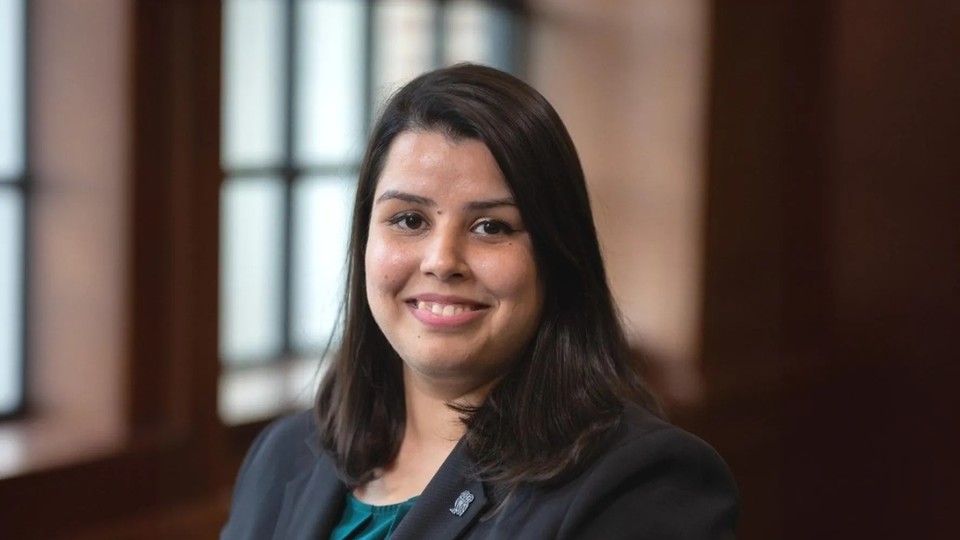
PREVIOUS CAREER AND CURRENT INTERNSHIP
Previous position before MBA:
- Title: Product Owner
- Company: Ericsson
- Location: Gurugram, India
Summer Internship:
- Title: Technical Program Manager Intern
- Company: F5
- Location: San Jose, CA
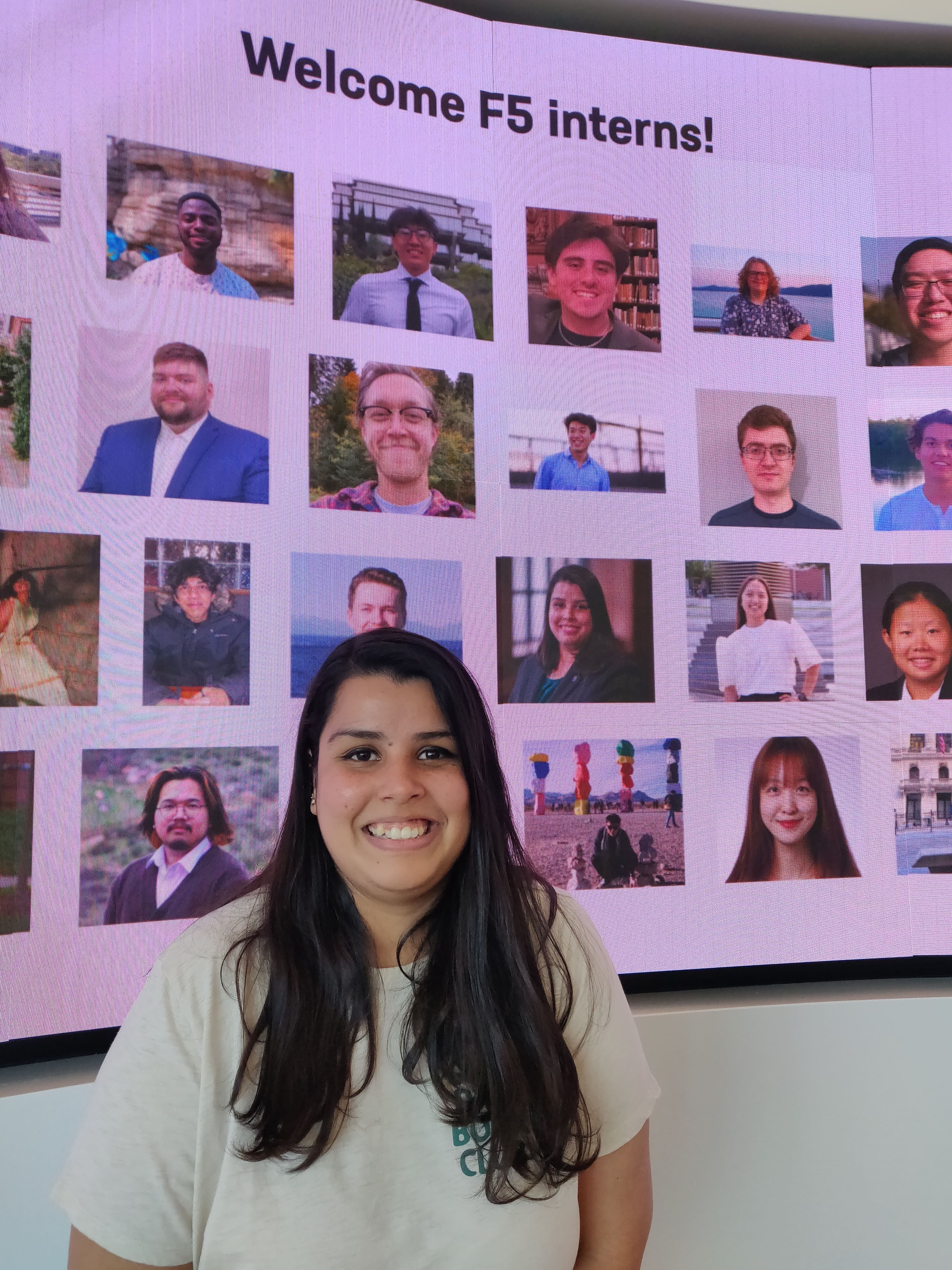
HOW DID YOU SECURE YOUR INTERNSHIP?
I applied for the role through LinkedIn. Two weeks later, I received my screening interview invite, followed by a Superday, which had three interviews back-to-back.
WHAT WERE YOUR RESPONSIBILITIES DURING THE INTERNSHIP?
I am working as a technical program manager intern here at F5. For my summer assignment, I am working on an AI implementation strategy for the organization that focuses on employee efficiency, standardization and automation.
WHAT DEPARTMENT WAS YOUR INTERNSHIP WITH?
I am part of the technical program management team in the Secured Distributed Cloud unit (SDC) at F5.
HOW DID YOUR MBA COURSEWORK PREPARE YOU FOR THIS INTERNSHIP?
Multiple things are helping me in this internship. First is the communication course, as it made my conversations with leadership teams very productive. Apart from that, a mix of concepts from Product Management, Data Analytics, and Strategy courses are helping me design the strategy to get the desired outcome. I am working on the business strategy part, and that involves bits and pieces of almost everything I learned in the last two semesters, be it finance, marketing or organizational behavior.
HOW DOES THE INTERNSHIP ALIGN WITH YOUR CAREER GOALS?
Having a tech background, I always wanted to continue in this industry. AI being the talk of the town, I wanted to get firsthand experience with that, and this internship has allowed me to do so. I will be completing my MBA with specializations in marketing and strategy. This internship allowed me to work in a strategy role that will add to my technical career.
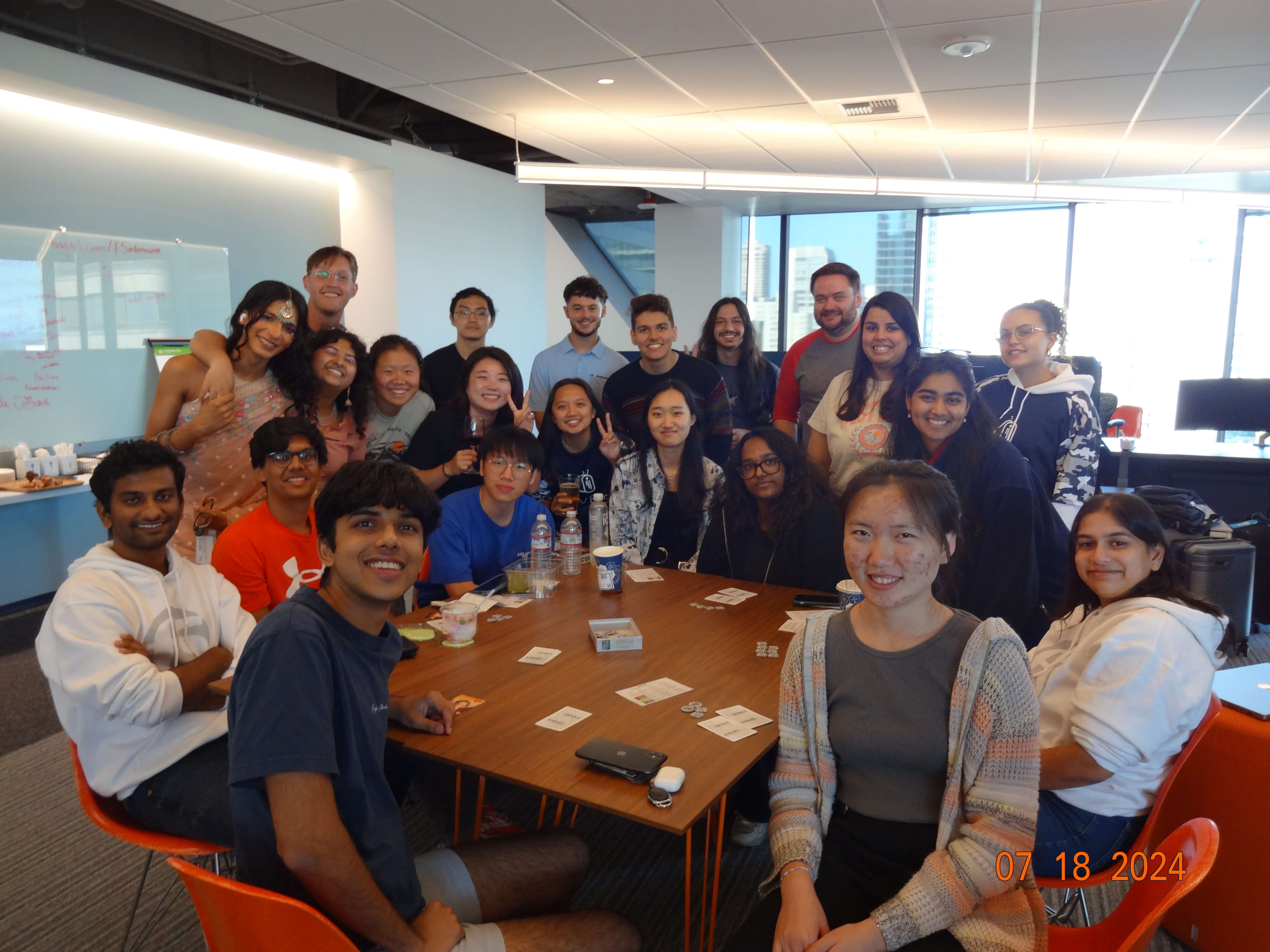
HOW DO YOU THINK THE INTERNSHIP WILL HELP YOU WITH YOUR MBA STUDIES OR FUTURE CAREER?
F5 is a SaaS-based/cybersecurity company that aligns perfectly with my experience and career goals. Working with AI strategy strengthens my profile to excel in that direction.
WHAT IS YOUR FAVORITE PART OF YOUR INTERNSHIP EXPERIENCE?
My favorite part is the people. I'm engaged in an exciting project with brilliant co-workers and leaders, and it's the team environment that enhances the experience. The senior leadership at F5 embodies the “BeF5” values, which is remarkable. I’m never treated as just an intern. I even had the opportunity to meet the CEO, chief product officer and chief marketing officer. The cherry on top was presenting my project to the CPO. The accessibility and ease of communication with everyone make it the best part.
WHAT ADVICE DO YOU HAVE FOR PROSPECTIVE STUDENTS?
It's important to present the best version of yourself to employers and those you meet but remember to stay true to who you are. Authenticity goes a long way. Be yourself but stay open-minded. The MBA journey is a time for growth and learning, and being adaptable will help you make the most of it. Embrace vulnerability and know that it's okay to feel uncertain at times. These moments can lead to significant personal and professional growth. The key is to bounce back, learn from the experience and work even harder.
Parool Didwania is a Full-Time MBA student in the Class of 2025.
The Rice MBA
Rice launches Chevron Energy Graduate Fellowship, celebrates inaugural recipients
Congratulations to Wesley Hungbui FTMBA ’25 for being named an inaugural recipient of the Chevron Energy Graduate Fellowship. Through a partnership between Chevron and the Rice Sustainability Institute, this initiative awards $10,000 each to 10 Rice graduate students driving innovation in energy-related research.
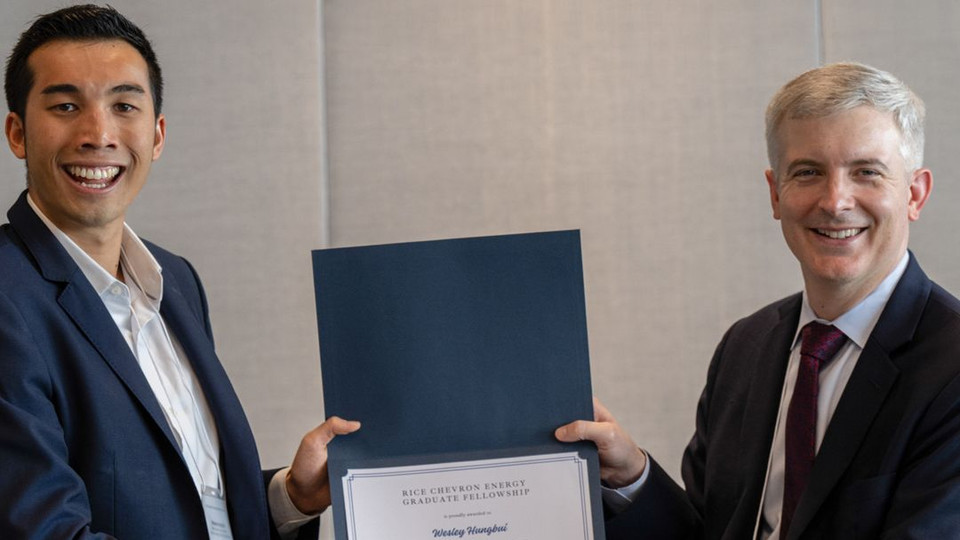
On Sept. 4, the Rice Sustainability Institute (RSI) hosted a reception to introduce the inaugural cohort of the Rice Chevron Energy Graduate Fellowship. Held at the Ralph S. O’Connor Building for Engineering and Science, the event brought together more than 50 attendees to celebrate this new initiative. Funded by Chevron, the fellowship provides $10,000 each to 10 Rice graduate students for the 2024-25 academic year, supporting their groundbreaking research in energy-related fields.
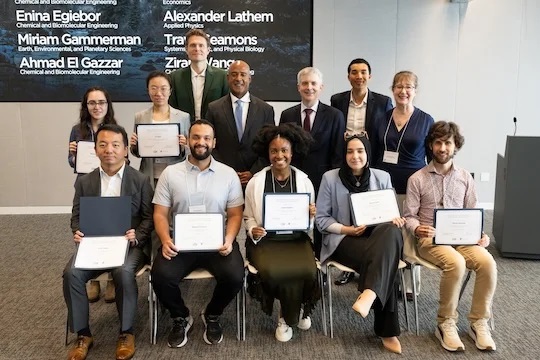
Rice President Reginald DesRoches opened the event by emphasizing the importance of the collaboration. “This exciting new partnership between the RSI and Chevron represents a significant step forward in our shared commitment to advancing sustainable energy solutions,” he said. “Through our combined efforts, we are not only empowering our students but also contributing to a more sustainable and innovative future.”
The fellowship recipients are researching solutions to some of the world’s most pressing energy challenges, from recycling lithium-ion batteries to producing eco-friendly hydrogen alternatives to fossil fuels. Their work focuses on creating real-world, scalable solutions to transform the energy landscape.
Chris Powers, vice president of carbon capture, utilization and storage and emerging at Chevron New Energies and a Rice alumnus, underscored the importance of innovation. “I’m excited to support emerging leaders like you all in this room, who are focused on scalable, innovative solutions because the world needs them,” he said. “Innovation and collaboration across sectors and borders will be key to unlocking the full potential of lower carbon energies. And it’s groups like you, our newest Chevron Fellows, that can help move the needle when it comes to translating, or evolving, the energy landscape for the future.”
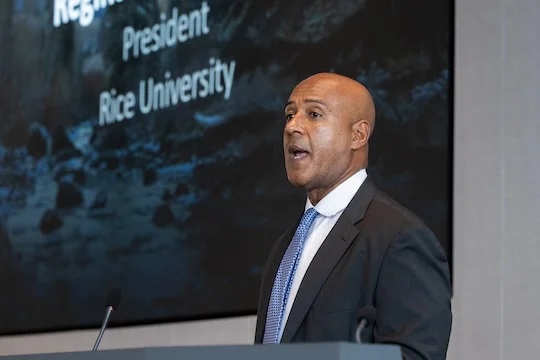
Ramamoorthy Ramesh, executive vice president for research at Rice, spoke via Zoom about the broader vision behind the fellowship. “These Chevron Fellows will question what exists today and discover the new tomorrow,” he said. “We want to be very good citizens, very good partners with Chevron, and do what is right for the planet.”
Carrie Masiello, director of the RSI and the W. Maurice Ewing Professor in Earth, Environmental and Planetary Sciences, presented each fellow with a certificate during the ceremony. This year’s Chevron Fellows include:
- Xi Chen, a doctoral student in materials science and nanoengineering, uses microwave-assisted techniques to recycle lithium-ion batteries sustainably.
- Enina Egiebor, a doctoral student in chemical and biomolecular engineering, works on solar-driven technologies to produce green hydrogen, an alternative to fossil fuels.
- Miriam Gammerman, a doctoral student in Earth, environmental and planetary sciences, studies soil minerals’ role in the global carbon cycle to improve carbon storage.
- Wesley Hungbui, an MBA student, develops financial models to encourage investment in sustainable energy projects.
- Alexander Lathem, a doctoral student in applied physics, researches carbon-free methods to produce ammonia, a key agricultural fertilizer.
- Ziran Wang, a doctoral student in civil and environmental engineering, studies power grid resilience in response to natural disasters and system failures.
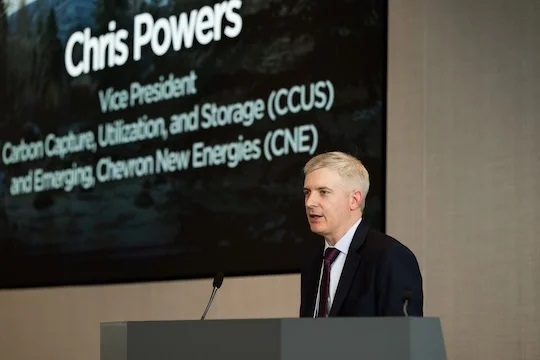
Other fellows include Ahmad El Gazzar and Zina Deriche, who are focusing on renewable fuels and carbon-capture technologies; Travis Seamons, who is working on biological systems to sequester carbon dioxide; and Stan Kannegieter’s research highlights the potential of soil organic carbon sequestration on agricultural land if we remove the additionality constraint.
“This fellowship supports students working on a wide range of topics related to scalable innovations in energy production that will lead to the reduction of carbon dioxide emissions,” said Masiello, who highlighted the fellowship’s diverse group of applicants, spanning 10 departments and four schools at Rice. “It’s important that we recognize the importance of intellectual diversity to the kind of problem-solving we have to do as we accomplish the energy transition.”
For more information on the Rice Chevron Energy Graduate Fellowship and the research being conducted by this year’s recipients, please visit the website.
You May Also Like

Rice University’s Jesse H. Jones Graduate School of Business today announced the launch of its Graduate Certificate in Healthcare Management program, a 10-month, credit-bearing professional credential designed for current and aspiring leaders seeking deep expertise in the business of healthcare.
Why Should You Pursue A Master of Accounting Degree?
Accounting is a high-demand skill that provides excellent earning potential to Master’s graduates. As a result, regardless of undergraduate major or background, a graduate degree in accounting can transform your career trajectory in as little as one year.
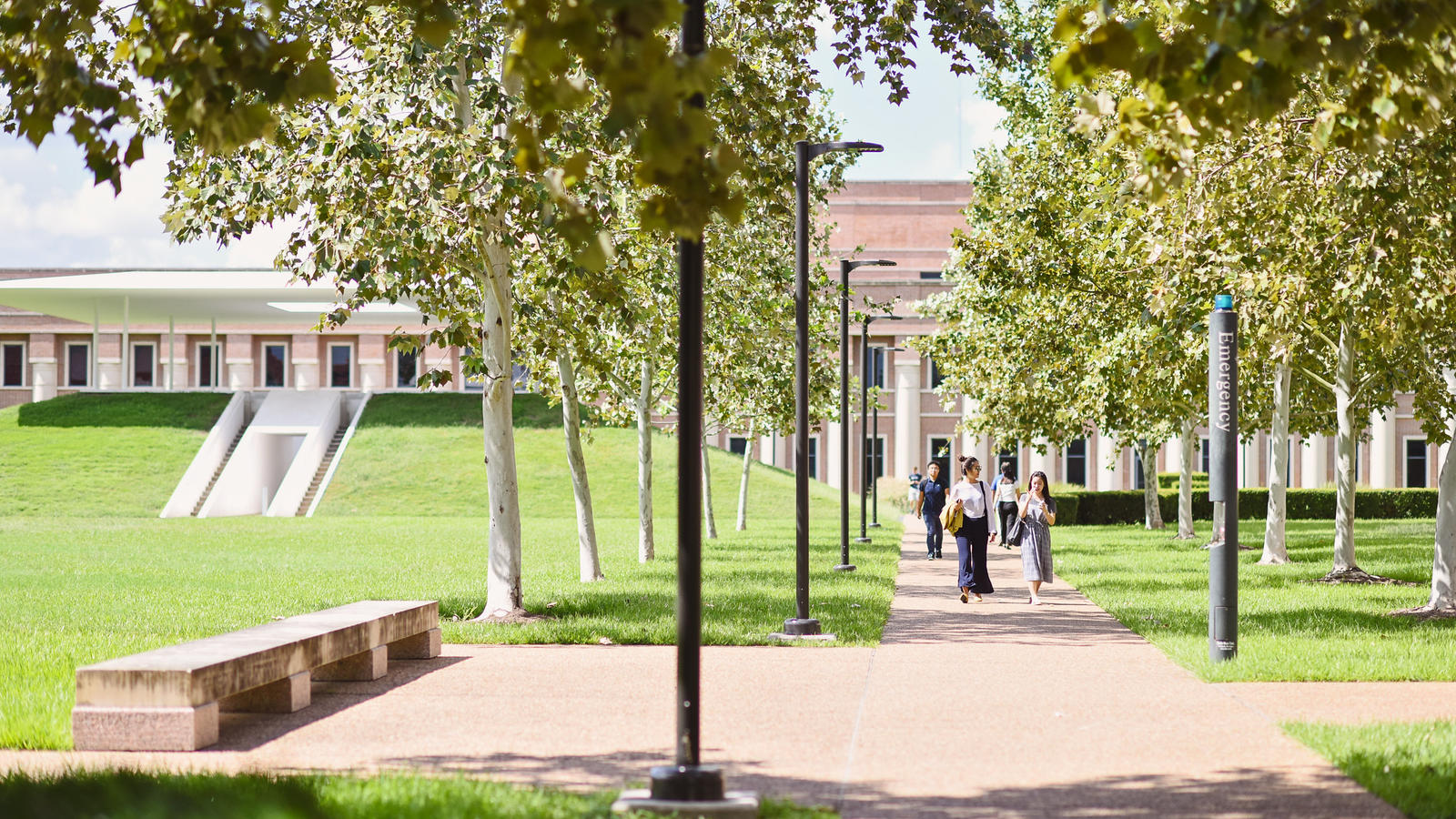
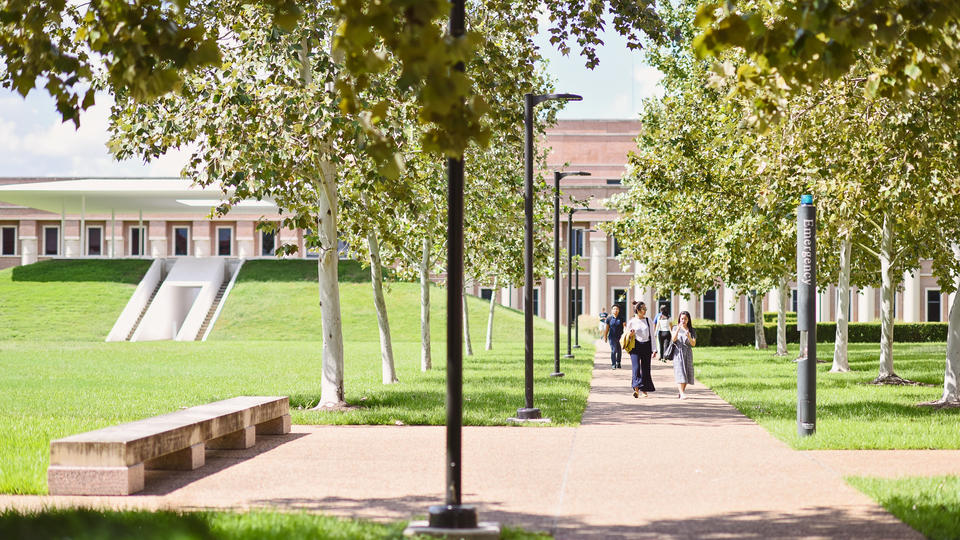
Why Accounting?
Accounting is a high-demand skill that provides excellent earning potential to Master’s graduates. As a result, regardless of undergraduate major or background, a graduate degree in accounting can transform your career trajectory in as little as one year.
Qualities that Master of Accounting students possess include the ability to synthesize across disciplinary areas, critical and analytical thinking and exemplary oral and written communication skills. If this sounds like your skill set, a graduate accounting degree may be a great fit for you!
Go From Bachelor’s To Master’s In As Little As One Year
Master of Accounting programs generally take one year, in addition to some prerequisite coursework. After this one year, you will be qualified to sit for the CPA exam and will have a range of opportunities available to you. Graduate accounting programs are available in four formats: integrated, online, part-time and full-time. Keep in mind that your program type can dictate how long the degree will take to complete.
Interested in Rice Business?
The Possibilities Are Endless
Accountants are problem-solvers trained to tackle new challenges daily. Our alumni often tell us that there’s no such thing as a typical day on the job, and that the profession is constantly changing. In addition to expert technical skills, successful graduates are adept at personal interaction and communication with their clients.
Because accounting is the universal language of business, you can leverage your graduate accounting degree to a job in virtually any industry or sector. This technical versatility will enhance your career options and boost your earning potential. And in contrast to almost every other profession, in the field of accounting, career opportunities actually broaden with time and experience.
Thanks to this ever-expanding career horizon, a Master of Accounting degree represents an exceptional return on investment.
Qualify For The CPA Exam
A Master’s degree in accounting will also qualify you to sit for the CPA (Certified Public Accountant) exam. Earning your CPA provides even higher salary potential and career options. Because CPAs are so highly valued in the professional world, this prestigious credential will benefit you throughout your career.
Ready to pursue this career path? Reach out to us at ricemacc@rice.edu. We’d be happy to share more information about the program and how it can propel you ahead.
You May Also Like
Keep Exploring
Fail Fast, Learn and Innovate feat. Tim Okabayashi ’05
Season 4, Episode 23
Tim is the very reason our podcast exists. He chats about helping launch Owl Have You Know, his dynamic career in the evolving energy sector and how embracing failure is key to driving innovation.
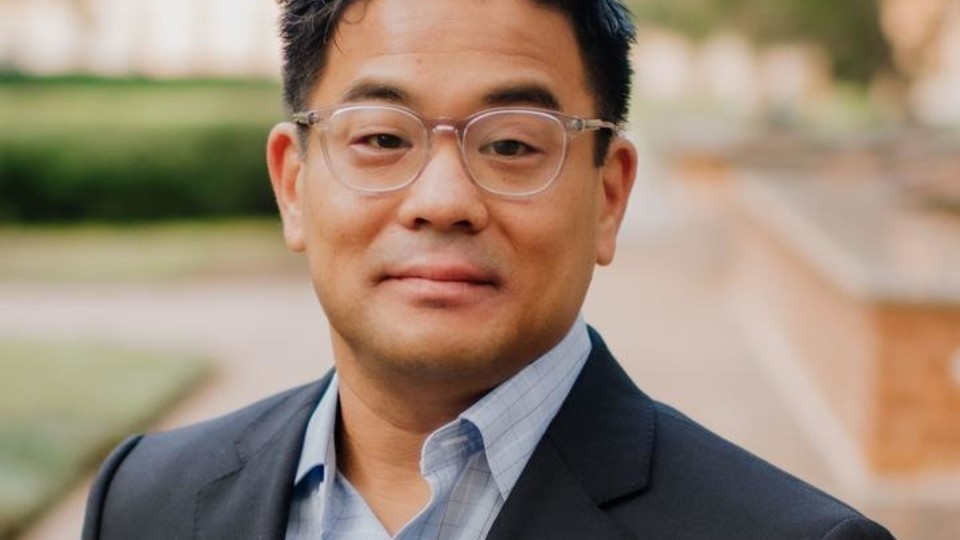
Owl Have You Know
Season 4, Episode 23
Our guest, Tim Okabayashi '05, is the very reason our podcast exists. A proud Rice Business alum, Tim not only earned his MBA here but also served as president of the Rice Business Student Association, volunteered with the admissions office, and played a key role in the consulting club. In October 2020, Tim and fellow alum Karen Crofton ’10 launched the Owl Have You Know podcast, bringing the vibrant stories of Rice alumni to life.
Today, Tim is a consulting manager for SLB’s end-to-end emissions solutions. His career has taken him from Kuala Lumpur, where he supported operations across Asia, to his current home in London, where he lives with his wife Casey and their two children.
In this episode, host Maya Pomroy ’22 — who shares not just a Rice connection but also a high school alma mater with Tim — catches up with him on his dynamic career, the power of the Rice alumni network, and his ongoing dedication to the school that shaped his journey. Tune in to hear about Tim's international experiences, his insights on the evolving energy sector, and how embracing failure is key to driving innovation.
Subscribe to Owl Have You Know on Apple Podcasts, Spotify, Youtube or wherever you find your favorite podcasts.
Episode Transcript
-
[00:00]Intro: Welcome to Owl Have You Know, a podcast from Rice Business. This episode is part of our Flight Path Series, where guests share their career journeys, the stories of the Rice connections that got them where they are.
At Rice, they say, if you're an Owl, you're an Owl for life. And Rice Business grad, Tim Okabayashi, exemplifies that statement in every way. The 2005 Jones School of Business alum and former Rice Business Alumni Board president talks to us about the extraordinary impact the MBA program has had and continues to have on his life decades after graduation. We also talk about his impact on Rice Business and how he and a classmate pitched this very podcast back in 2020, using none other than water bottles as microphones.
An impressive career in energy leading him to many different corners of the globe, Tim shares a bit of his own wisdom about the future of innovative energy technologies, what he's working on now, his perspective of always staying deeply rooted to the Rice Business Network, and even a piece of advice he would give to his younger self.
So, welcome, Tim. We're thrilled to have you today.
[01:13]Tim: Maya, it's really a pleasure to be here. So, thank you very much for having me.
[01:17]Maya: One of the other things that people may not know is our history and our background. So, we went to high school together, and I haven't seen you in, like, you know, it's been two years since high school, right, so, because we're really young.
[01:31]Tim: I don't, I don't want to give anything away, but I ran into some of our fellow high schoolmates, and they reminded me that my 30th-year reunion was coming up, which is a pretty scary thing.
[01:44]Maya: No, it's a great thing. And not only that, but we share our high school, like, we also share Rice, which is really such an honor to reconnect with people. And that's what I've noticed that Rice Business does. You reconnect with people that you would have never expected.
[01:59]Tim: The Rice network is a fantastic network. And I find that it's one that people just stay really close together, and even if you are connected only through a connection of a connection, that Rice Business connection is always there.
[02:14]Maya: And not only that, but you really have stayed active as an alumni. I mean, you graduated in 2005. I mean, I'm a class of ‘22, so I'm a newbie. And your connection to Rice has really spanned decades. Let's start with Rice and why you chose Rice. You went to the University of North Carolina at Chapel Hill, I remember that, when you graduated. And you studied science and engineering and you minored in chemistry. So, what was your goal? What did you want to do when you grew up?
[02:47]Tim: Actually, when I graduated UNC, I went into environmental consulting, which is, kind of, interesting. Basically, I was living in Atlanta. I had clients that were in all aspects of manufacturing, materials, commercial aviation, the military, and I was helping them out with their air quality compliance, industrial hygiene programs. Anything, kind of, EPA-related, we were there to help support them.
And at the time, after a few years, I felt a little bit like I wanted to make a transition. I was getting very used to, kind of, the operational level things, but I wanted to have a different perspective. I wanted to gain that business perspective, that strategy perspective to see what were the drivers behind the operational decisions that were being made.
That's why I wanted to look at a full-time MBA program to make that transition, not only in function, but also industry.
[03:38]Maya: You said you were in Atlanta, did you want to come back home to Houston? Was that one of the real reasons that you wanted to come to Rice? I mean, other than the fact that Rice is the best, you know, MBA program in the country in our opinion, but was it, was that the reason?
[03:52]Tim: Yeah. So, growing up in Houston, I have a lot of family there, a lot of friends there. And, you know, I, at least, wanted to have the opportunity to work in Houston. Certainly, the energy markets at the time were very hot and wanted to make that an opportunity of what I wanted to explore post-graduation from Rice. So, that combination of wanting to go into energy and also work in the Houston area was definitely one of the reasons why I went back to Rice.
[04:17]Maya: Tell me about those two years that you were there. So, it was from ‘03 to ‘05.
[04:21]Tim: That's right, yeah. The school had just moved into the new building about a year prior. It was a great experience. Our cohort sizes were about 60, and we had 60 people, and we had about three classes.
It was a great experience. Could not believe how close you were able to get to your classmates in such a short amount of time. Combined with, in fact, the curriculum was challenging and it took up a lot of time. I mean, I was busy from every moment of the day, it seemed like, but I got so much out of the experience.
[04:53]Maya: Can you tell me some of what drew you to really stay engaged, over all of these years, even after graduation? So, you graduate in ‘05, you know, I mean, everybody says that they want to give back to their alma mater and all of that, but what was it, specifically, about Rice that made you stay so passionate and involved?
[05:12]Tim: One of the things I distinctly remember about my time at Rice was, probably, on the first few days we were going through orientation, there happened to be some, then, Rice Business Alumni Association board members who were attending an event. And someone introduced themselves to me and just had a conversation.
It was so great to see that those alums and board members of the Alumni Association were there, getting to know the incoming students. And so, that spoke volumes right from day one of how engaged the alumni base was for Rice Business. It was incredible. And, even through the program, you would always come in contact with alums who were recruiting or networking, and they were always so passionate about Rice Business and giving their time back to Rice Business and to be so giving with the programs within Rice Business, from Rice Alliance to business plan competitions, to mock interviews, to recruiting. It just showed part of the real strength of Rice Business and what keeps the strong network alive for the school. And I wanted to be part of that.
Aside from that, I had the opportunity to move overseas. And I really found, kind of, one's personal network, when you move overseas, it can be a little bit diminished, just by geography and distance and miles, right? And I know you've lived overseas as well, but I moved to Kuala Lumpur in about 2013, so, some years after my graduation from Rice. When I got back to Houston, I joined the board, or I applied for the board, and spoke about how I wanted to really try and bring about more engagement with the international graduates who have moved away from Houston and the U.S. So, I wanted to try and help build that connective tissue between the school and those students, where there's not a lot of concentration of graduates.
[06:55]Maya: Right. Well, now, well, now, we have a whole campus overseas and, well, over in Paris, which is a very nice place to be. I think that Rice recognizes that there's a need for that, because we are growing exponentially and our alumni network is growing exponentially. And by having opportunities to connect with alumni all over the planet, that's one of the distinguishing factors of Rice Business.
[07:19]Tim: That, and the Rice MBA program, basically, allows for students to be anywhere around the world, taking the same classes, going through the same experience together as the rest of the Rice Business school, and that goes to the Jones School.
[07:32]Maya: So, tell me about your time as the president of the alumni board. How long is the term, and how do you get in? You know, I know that there's an application process and due diligence and all of that.
[07:44]Tim: Sure. There's an application process where you submit a form to the board. You describe yourself, about your history, how you've been involved with Rice Business in the past, why do you want to become a board member on the alumni association? And then, if you are elected to the board, then you join for a period of, what I believe is a minimum of three years or a maximum of six years, unless there's some extenuating circumstance where you become an officer and it gets extended. So, I've actually served for a total of seven years. I've just finished up my seventh and last year as past president. So, officially, I am off the board now.
[08:19]Maya: But you're also in the UK. You live in Cambridge. And so, you served as the president from, you know, across the ocean.
[08:27]Tim: I did. You know, that was one of the concerns I had to discuss with the, then, executive committee, like, can we pull this off? Can someone be not in Houston, not in Texas, not in the U.S., and still be the board president? And, you know, we had come through COVID by this time, so everyone was on Zoom, and we were conducting most of the meetings in that fashion.
So, we really didn't see a problem with that. There were some events during my term as president that I wasn't able to get back to, and we nominated other people on the board, or the president elect stepped in or other board members stepped in to, say, give a speech at graduation where I just physically couldn't be there. I tried to attend as many events as I could, but the rest of the board was happy to help out. So, it was fantastic support.
[09:13]Maya: Well, and how lucky Rice Business has been for you to serve for seven years. Are you sure you don't want to come back for, maybe, an eighth? Or, I mean, is there, like, a… can you, I mean, can you, like, take some time off and then maybe come back? I don't know.
[09:26]Tim: Sure.
[09:26]Maya: Just, I don't know what the, what the rules and regulations are, but nobody wants to lose Tim. And I don't blame them.
[09:32]Tim: I'm sure there's always ways in which I could volunteer my time for Rice Business, and I'd be happy to do so. While we were on the board, we tackled a lot of issues. And I'm really proud of the work that myself and my fellow board members did. I mean, I think I did the math or asked someone to help me out with the math. I think we came in, I came in contact with about… someone's going to have to fact-check this, but maybe, like, 40 different alums have, kind of, been in and around the different years while I've been on the board. So, it was a great way to get to know other alums in a way that I hadn't before, from all different years, from all different backgrounds. So, that was another plus.
[10:08]Maya: For sure. So, it was COVID time and everybody felt fairly disconnected. How did you and Karen decide, you know what? Why don't we start a podcast at Rice?
[10:22]Tim: Yeah. So, Karen is Karen Crofton, who's in Boulder, Colorado. It was actually before COVID had happened. I think we were at our fall retreat in September — August or September — where we were discussing ways in which the board could increase alumni engagement. That's really the core of what the board is there for. We're there to help increase engagement with alumni and build up relationships between the school, alumni. And when I say school, we're looking at aspects of the students, the faculty, and other alumni. So, any way we can increase engagement with the alumni base back to the school, however you want to define it, that's fair game for us. That's what we want to look at. That's what our, kind of, North Star is and what drives us.
There are some other projects that we were considering, and we, kind of, broke up into teams and did a vote on what looked interesting. The topic of a podcast came up, and Karen and I were the only ones brave enough to, kind of, join that squad. And we were, we were hashing it out. We broke off into a breakout room. I think we came up with, like, a three-slide presentation to pitch back to the group after we came back from break. I think, literally, with about 10 seconds before it was time to present, I leaned over to Karen and just said, “Let's scrap the slides. Let's just pretend we're doing a podcast interview right now.” She was totally game for it. She's like, “Let's do it.”
I think we picked up our water bottles we had and just used those as microphones. And I, kind of, got a little announcer voice going on and asked Karen questions about what the podcast would do, what it would be like, who would we interview, why we'd want to do it. And it was just, kind of, a hit. We, kind of, got immediate approval, and were off and running. So, for the next year, we, basically, were in planning mode. How do we do this? And at the time, we thought we would have to do it at the school. We would have to take advantage of the recording studio at the school. You know, we were, kind of, really worried about, like, how are we going to get alums to come by the school to do the recording? Is that going to limit us to just Houston-based alums?
We were worried about that. Then, we were thinking about the production. We got a lot of these things figured out, but there's still some issues we were working through. So, it did take us a while. And considering that the alumni board is a voluntary board, we were doing this in our part time. So, it was, kind of, incrementally nudging along. So, it did take us a little while. But we did figure it out in the span of a year and started moving forward, recording our own board members first as our brave guinea pigs.
[12:46]Maya: So, what's your favorite podcast? I have to ask it. Or, are you, like, do you love podcasts? Is that why you decided… hey, by the way, very creative of using the water bottle as a microphone. I mean, I have to say, like, hats off to that.
[12:59]Tim: There’s so many podcasts that come to mind, the ones that I really remember and that I think are incredible stories of people's lives that I only knew a portion of, right? And so, I mean, just to name a few, well, I'll be partial. I'll be partial to a family member, full disclosure, Amanda Stewart was on and she talked about the DEI activity she's bringing about in her company, and I'm so proud of her. There's Brian Jackson, current president of the board. He told his story out there, and it was amazing. I can't believe how transparent and authentic he is. And he's like that in real life. It’s unbelievable.
There’s another fellow high-schooler that was interviewed, Will Robertson as well. That was a great interview. Oh, Bethany Andell. I mean, she talks about her business, but also, kind of, her ethos of the way she engages with clients. So, it's really great to hear just additional color about people's lives and their intersection with Rice Business.
[13:51]Maya: Yes. And so, what's interesting is that I know the studio that you're talking about that we have on campus and how unique and ironic is it that we were able to, because of COVID, have an opportunity to really interview anyone on the planet because of the innovation that we have, because you're not in the United States and we get to talk to you and tell your stories, or it really doesn't matter where you are on the planet to be able to share the journeys and the stories and the pivots and the flight paths and all of those things that you want to showcase about Rice.
[14:26]Tim: I just don't want to diminish how things might have looked back then, you know, as well. But yeah, you're absolutely right. The opportunities to virtually expand your reach are pretty phenomenal these days. And I think the Owl Have You Know platform is a great one that continues to grow and expand with the different programs and subject themes and the interviews with the staff and academics and highlighting the research. I think it's incredible. I think there's a lot of room for Owl Have You Know to become a really central part of Rice Business, as well as the business community.
[15:02]Maya: For sure. So, the name, Owl Have You Know, tell me how you came up with the name. How did that transpire? Because people ask me that all the time, and I'm like, “I don't know, but I'll ask Tim.”
[15:18]Tim: All right. So, the Owl Have You Know name came about just through basic brainstorming and trying to find something witty and a little punny, if you will, for the podcast.
[15:30]Maya: Very punny, very punny.
[15:32]Tim: Yeah, there you go. I actually pulled up a list of some of the other contenders, and I think, I think we could probably agree on most of these, that they were probably good that we passed on. Let's see. Who gives a hoot?
[15:44]Maya: That's a good one.
[15:46]Tim: Owlified might have been the next best contender, yeah. So, certainly, it didn't take us a long time to realize that Owl Have You Know was a much better name. And we also wanted to leave it at the time, I think this is evident in the first season that, at the end of every podcast, we would ask the guests of, like, if you had to say something, like, Owl Have You Know, as a surprise, that we were thinking, like, that would be, kind of, a little bit of the catch of the podcast.
[16:14]Maya: Huh! Gosh, nobody told me that part.
[16:17]Tim: I think it's a lost opportunity, Maya. I mean, you got to, you got to, you got to bring it back.
[16:23]Maya: Well, for sure, I'm going to bring it back. And don't let me forget to ask you at the end of this, if you could, if there was something that you could share. Wait, wait, wait, what's the exact question? What is it?
[16:34]Tim: If you were to tell the audience one thing in the framework of Owl Have You Know, what would you tell them?
[16:40]Maya: Yes, I love that. I love that. Let's pivot a little bit and talk about what you have been up to since graduation and, kind of, the trajectory of your career and how Rice Business has really shaped who you are today. Because I know how Rice Business and Owl Have You Know has shaped me and continues to do so, but let's talk about you.
[17:01]Tim: Sure. So, right after graduation, I joined this clean energy technology startup company in Houston. It was a small company that was primarily angel-funded. And we had this proprietary technology that we're trying to break into the off-road diesel market. So, off road diesel in the U.S. is primarily red dye diesel that goes into engines like locomotives or drilling rigs, marine vessels. And at the time, again, back in 2005, you know, commodity prices were high. And anything we could do to help reduce fuel consumption and reduce harmful combustion emissions was a good thing.
So, we were trying to break into that market, and it was a great experience being with a startup company and being in that industrial space. Did that for about three years. I actually joined the company with a fellow classmate of mine. So, we were… the two of us from our class were lucky to sign on as full-time employees there.
So, it was a great chance to do something that was really rewarding and doing it with someone who is a close classmate. About 2008, then, I left the company and then joined Smith International, which was an oil field company, doing M&A work. We were looking at, what was our white space? Where did we want to grow into? And I was definitely leveraging my MBA to look at opportunities for acquisition to help us grow.
And in about 2010, then, we got purchased by Schlumberger, which is now SLB. And so, then, I transitioned to a different role, and I transitioned into what we would call marketing and technology, which was looking at market analysis, pricing, product launches, service launches within the drilling tool space for SLB.
Did that for several years. And then, in 2013, transitioned to Kuala Lumpur to take on a more ops-driven role there for about three years. And that was a, that was a really great assignment. It was our first international assignment, and it was a tough one.
[19:04]Maya: And you've worked a lot in Asia and in the Asian market. What were some of the surprises and some of those “aha” moments while you were in Asia?
[19:13]Tim: I think one of my biggest learnings was actually passed to me from a colleague. And at the time, I, kind of, brushed it off. But he said, like, you know, “Tim, the world is such a small term for such a large place.” And I think, often, in times, in oil and gas, we think of the natural resources, you know, crude or natural gas as really being just commodities and it's the same anywhere. But that's really not true. I mean, to a certain degree, it is, by the chemistry, but then, again, the methods and the people and the culture around the activities in different parts of the world can be uniquely different. And that is something that I had grew to have a great appreciation of when I moved abroad.
[19:57]Maya: And then, what brought you to Cambridge? I mean, obviously, SLB brought you to Cambridge, but so tell me about that path.
[20:03]Tim: In about 2018, then, I got moved to a different assignment over in Cambridge, which is attached to a research facility. And at the time, we were standing up this group to leverage our own data warehouses, if you will, to try and develop digital solutions for our drilling operations. So, this is, I mean, again, going back to 2018, now, it probably doesn't seem so novel, but at the time we were really trying to unpack and leverage all this data we had to bring about solutions, both internally and externally, for our clients. So, I was part of that domain team that looked at big data analysis for well construction activities.
[20:42]Maya: What do you see for the future, you know, because we have energy transition, we've got so many exciting things on the horizon, also, with AI and drilling technology and clean energy? What are you the most excited about of what's coming up in the next, I mean, five to seven years?
[21:01]Tim: I'm most excited about the continuation of just the advancement of technology throughout the oil field and new energy and alternative energy and transition energy. Like, at the heart of it, the research and development, technology development is really the key enabler. And it takes time to develop this technology, commercialize it, and then have adoption, right?
And this process requires people. And yes, big data, AI can certainly assist, but at the heart of it, there's still this need for people and researchers and ideas and science. And so, being surrounded by these highly talented people, like in Cambridge and throughout the rest of the world, throughout the industry that are at the forefront of technology development, that's what still gets me excited about working in this space.
[21:48]Maya: And so, you've been with SLB for quite some time, even through a rebranding, because it was Schlumberger and now it's SLB, right? I live in Houston. So, I drive by, and I saw the changing of the sign. And SLB is, you know, a behemoth in the energy space. What do you see for the future of SLB?
[22:06]Tim: SLB, at its core, is still delivering products and services to oil and gas clients. We also have SLB New Energy, which is looking at different avenues of developing new energy solutions for the energy market. SLB is a technology company. And also, what I'm doing now within the methane space is very, very appealing and has the opportunity to really help decarbonize the emissions that come from oil and gas operations. So, these are the things I'm most excited about being with SLB.
[22:40]Maya: Tell me a little bit, whatever you can, about what you're working on, with regards to methane. Because, obviously, I'm assuming you're talking about flaring.
[22:47]Tim: Sure. Well, that's one key aspect of it. So, you know, the IEA, the International Energy Association, approximates that about one-third of the methane in the atmosphere comes from energy-related activities. And methane is a greenhouse gas, and on some levels, or some estimations, it's about 80 times more powerful in terms of global warming potential as a ton of carbon dioxide over the span of about 20 years.
And what's really interesting is, with this contribution of methane from the energy industry, about 50% of the methane emissions is approximated to be able to be reduced at no net cost for the industry. Meaning that the methane, in the form of natural gas, can be put back into the pipeline and sold. And so, there's this huge potential for abatement that could be at relatively low cost or no cost to the industry. And what's difficult is, often, to find out where that methane is, how much of it is there, and what type of abatement technologies to apply.
And so, our group, the SLB, End-to-end Emissions Solutions, is in that space. We're helping our clients identify where their methane emissions are coming from, quantify it, find ways to reduce their emissions, and then help them report their emissions to whatever reporting agency or regulatory agency that might need them.
So, emissions could be coming from flare, like you said, or they could be coming from general leaks, right? So, leaks would be called fugitive emissions. Sometimes, you don't know how long a leak is going for, or you don't know how big the leak is. So, you do need some measurement technologies to go out there and find them and then identify them and then repair them.
[24:31]Maya: That's really, really, really interesting. I know that they're doing a lot of work here in Houston. So, do you have any plans of coming back to Houston? I know that you've got some kiddos. And are you enjoying life in the UK?
[24:43]Tim: We do enjoy our time here in the UK. We've grown very fond of the place we live and the friends we've met. I think we've been very fortunate wherever we've lived, be it in Malaysia or Houston or Cambridge, to just have really found a good network of friends. That is one thing that, being an expat, you know, you're, kind of, removed from that safety net of your home, let's call it home, friends and family. And you need to, kind of, find support around you wherever you are. And we've managed to do that in some ways. And so, we're very fond of the people that we have close to us here. And we know that, eventually, we will most likely move back to Houston. We have friends and family that we’re very close to back there. And we miss the food. So, eventually, we will find our way back to Houston, but right now we still continue to look at this as an adventure.
[25:31]Maya: Well, can you tell me a bit about your family and about your wife? Because they've been, they've been on this journey with you.
[25:37]Tim: Yeah, my wife is, my wife is really amazing. She's actually from Houston as well. We grew up, you know, probably about two miles from each other, but we never knew each other until we were adults, until we started dating. So, it's really, kind of, interesting. We actually have some friends of friends in common, but yet, we still never met each other in Houston. She is a classically trained soprano singer. She graduated from the Moores School of Music at University of Houston.
Prior to us moving around the world, she spent a lot of time in education, teaching middle school choirs. So, that was what her previous professional life was. I really can't say how amazing she is. Just to give you an example of the support she has given me and how great she is, I remember distinctly, we were waiting for a transport bus to take myself and then just our one daughter and about six huge duffel bags to the airport to move to Malaysia. This was going to be our first assignment overseas. And even up until the point where that van pulled up, we were like, “Are we doing the right thing? We were about to take ourselves and our 14-month-old daughter away from her grandparents and family, and we're going to move, literally, around the world. Are we sure this is the right thing?” And I think I recall her, she just looked over and said, like, “Tim, I believe in you. I believe in us. And I believe that we will survive, no matter what.” And I think, at the end of the day, like, that was such a great thing she could say at the right time.
The role I was taking was a stretch role. I was luckily pushed into this role by some mentors for growth. And there are some nerves about that. But to be given, basically, the opportunity to fail and permission to fail from my partner was just an incredible gift. And it's something I will always remember.
[27:30]Maya: That's phenomenal, that's a phenomenal person to have a partner. And we talk a lot, even at Rice, part of the curriculum is you got to learn how to fail because that's when you have the most growth, you know. And to have that support, that's one of the things that, you know, has stuck with me about Rice, is that you've got to learn how to, how to fail, and then how to get back up and how to try again. And it seems so simple, but people have such fear of doing that. When you're an adult and you're, you know, you're married and you have children that are depending on you…
[28:03]Tim: A mortgage.
[28:04]Maya: Mortgage, right. You've got bills to pay. You're like a grownup. You don't feel like one, but you still are. And, you know, you've got all these responsibilities.
[28:12]Tim: Adulting is hard.
[28:14]Maya: Adulting. Yes, adulting is hard, but, you know, that's what we try to teach our own children is you've got to learn how to fail. And then, we can't lose sight of that as adults as well, because that's how you keep growing and keep pushing yourself. And you got to live by the words that you preach. So, that's incredible that you have, you have that opportunity to take on stretch roles. And also, just going to Rice was, you know, kind of, a stretch role, I think, for anybody.
[28:39]Tim: Sure!
[28:39]Maya: To take that step and decide, “You know what? I'm going to do this. I have no idea if I'm going to succeed or if I'm going to fail, but it's worth a try.” And I think that that's really what is unique and sets us, Rice Owls, apart from the rest of the flock. It's obvious. We're a different, we're a different breed of bird. It's one of the best decisions, I think you'll agree. It's one of the best decisions that anybody can make.
[29:08]Tim: Yeah, absolutely. I don't regret it for a minute. To just bring in the other members of the core family, just real fast. I've got two amazing children, a 12-year-old daughter and a nine-year-old son, and they're just amazing little humans that I'm always surprised at their resilience every day. Our son is starting to play cricket. I mean, he's asking help for cricket and I have no idea what to do.
They're involved in their own activities. And, you know, we're trying to give them space to grow in the interests that really are attracted to them. And they're finding their way. And we're trying to support them every way we can.
[29:42]Maya: Do you guys come to Houston at all?
[29:45]Tim: We do. We try and make it back at least once a year. I mean, if we don't make it back once a year, we definitely get in trouble with our family.
[29:52]Maya: You should definitely come by Rice, which I'm sure is on the agenda, along with your kids. And who knows? They have an undergraduate business program now, too.
[29:59]Tim: I know. I know.
[29:59]Maya: So, maybe, one of your kids would love to come and be a Rice Owl as well, because it's really incredible growth. And you have to come see it when you're in town.
[30:08]Tim: Yeah, it's very exciting. I think you could really see from the ambition that Rice has the confidence that the university has in Rice Business as well. And I think that what makes it special is, you know, the graduates, the alumni, the students, Dean Rodriguez, his staff, the faculty.
What I've come to find out with my term in the alumni association is that it's not just the dean's office. You know, I think it certainly is. And that's where the direction comes from and the inspiration. But there's so many members of the staff that work at Rice Business that help propel the school forward day to day. And, you know, I think, year in and year out, they are there as the, kind of, the constants, if you will, to help drive things forward. And I think, sometimes, we don't give enough credit and thanks and recognition to the staff that works for Rice Business.
[31:04]Maya: Absolutely. And to people like you who volunteer their time to continue that engagement and to give back, because that's also one of the things that makes Rice Business so unique and special is alumni like you, and the ones that I get to talk to and to interview, because that's really the heart and soul of the school.
[31:24]Tim: Absolutely.
[31:25]Maya: So, a couple of last questions. What's one piece of advice that you would give your younger self?
[31:33]Tim: I think I would give myself the advice that we’re talking about earlier, that it's okay to try things and fail. Like, fail fast, learn, innovate. Like, it's okay. I think, kind of, growing up, however I did, you know, I think there was always this mystique around failure. And so, you know, failure is not a bad thing, as long as you learn from it and develop. So, I think I would have told myself that a bit earlier, yeah.
[31:58]Maya: That it's okay to fail and fail, but fail fast.
[32:00]Tim: Yeah.
[32:01]Maya: And then, what's one thing that Owl Have You Know, Tim Okabayashi… because now I'm going to ask everybody that.
[32:13]Tim: Yeah. Owl Have You Know that, while I've been in Cambridge, I started to row with a rowing team, like, a crew team. I was pulled in by a coworker. They have a river here in Cambridge, the Cam River. There are boat clubs all up and down the river, and they have social teams for adults, as well as the students. And I, and I started to learn how to row and be a cox for a crew team. And it was a really enjoyable experience. Probably, one of the more difficult things I've ever had to do, of being in charge of an eight-person boat, rowing down the river, and maybe even more difficult than being in some of the courses at Rice.
[32:51]Maya: Okay. Well, it has been a pleasure to talk with you. And again, need to thank you for the brainchild that you came up with, Owl Have You Know. Grateful for an opportunity to talk with you and to share the stories of alumni and faculty and staff and to really showcase Rice Business, one story at a time.
[33:11]Tim: Well, thank you, Maya. And thank you for continuing on the part of being the host. You, Scott, David, and Christine have done an amazing job being the voice of Owl Have You Know. And we couldn't do this without you. So, thank you very much.
[33:26]Outro: Thanks for listening. This has been Owl Have You Know, a production of Rice Business. You can find more information about our guests, hosts, and announcements on our website, business.rice.edu. Please, subscribe and leave a rating wherever you find your favorite podcasts. We'd love to hear what you think. The hosts of Owl Have You Know are myself, Maya Pomroy, and Scott Gale.
You May Also Like
Consulting in Action: Alphy Thomas' Summer of Strategy at BCG
Discover how Alphy Thomas leveraged her MBA skills in financial analysis and strategy to drive impactful results for clients during her summer internship at Boston Consulting Group (BCG).

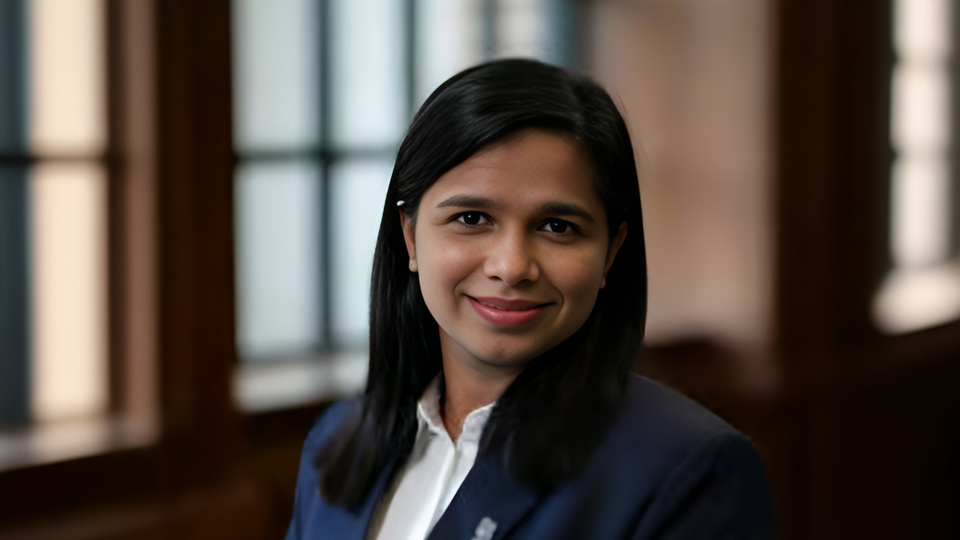
PREVIOUS CAREER AND CURRENT INTERNSHIP
Previous position before MBA:
- Title: Assistant Manager
- Company: Mangalore Refinery and Petrochemicals Limited
- Location: Mangalore, India
Summer Internship:
- Title: Summer Consultant
- Company: Boston Consulting Group (BCG)
- Location: Houston, TX
HOW DID YOU SECURE YOUR INTERNSHIP?
I went through a pretty standard recruitment cycle.
WHAT ARE YOUR RESPONSIBILITIES DURING THE INTERNSHIP?
As a summer consultant, I am assisting my team in helping the client achieve savings. This role allows me to apply my MBA knowledge in financial analysis and strategy development to real-world projects, contributing to our client's success.
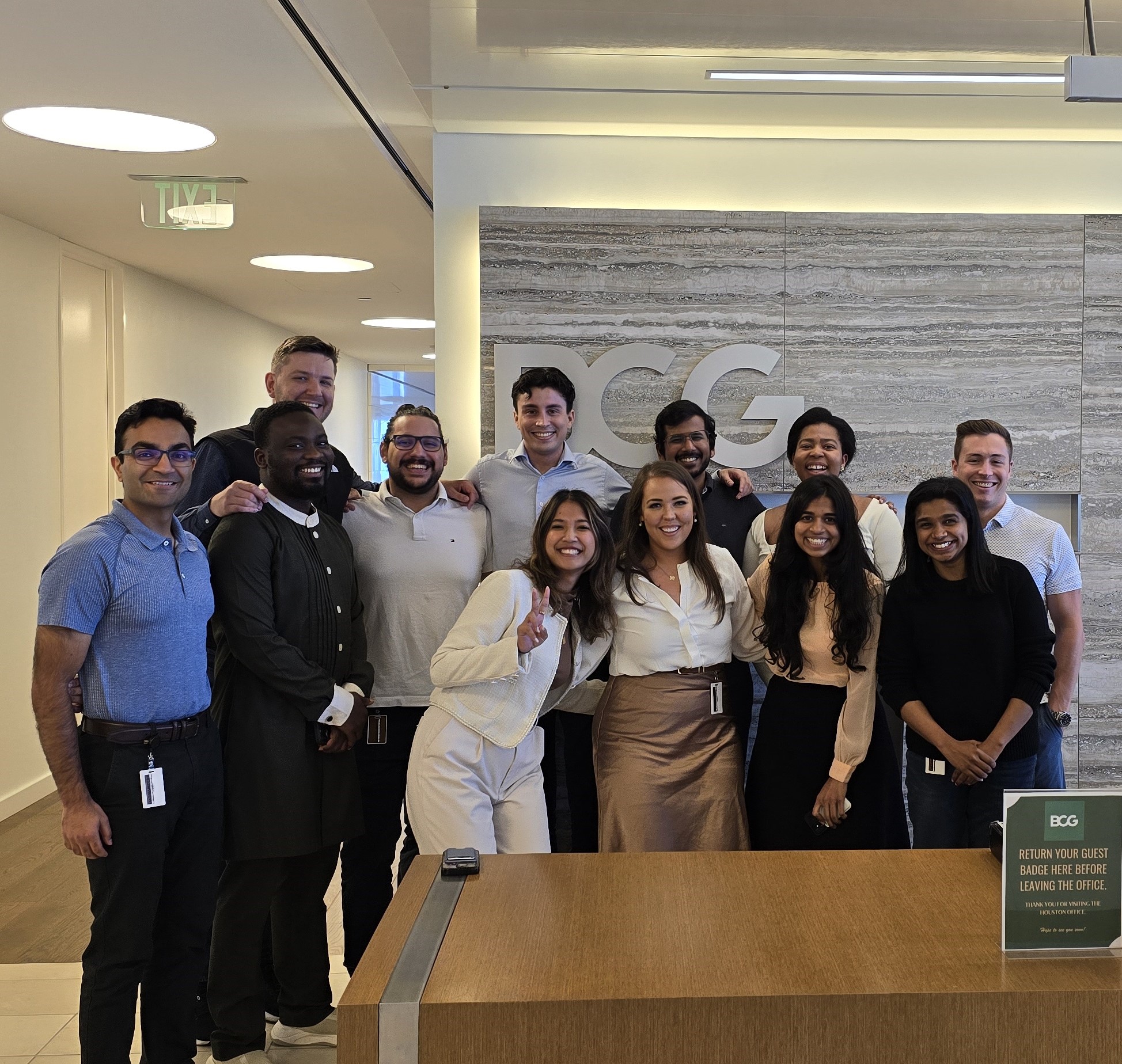
WHAT DEPARTMENT IS YOUR INTERNSHIP WITH?
My position isn’t with a specific department. I work with different groups.
HOW DID YOUR MBA COURSEWORK PREPARE YOU FOR THIS INTERNSHIP?
My MBA has been instrumental in handling the financial analysis and strategy development aspects of the project. The knowledge and skills I have gained through my studies are directly applicable to the work I am doing in my internship, allowing me to contribute effectively to my team’s success.
HOW DOES THE INTERNSHIP ALIGN WITH YOUR CAREER GOALS?
My goal is to switch my career path toward consulting, and my current internship with a management consulting firm is helping me achieve that. This internship has provided me with the opportunity to learn and develop the skills needed to work as a consultant after completing my MBA.
HOW DO YOU THINK THE INTERNSHIP WILL HELP YOU WITH YOUR MBA STUDIES OR FUTURE CAREER?
My management consulting internship is greatly enhancing my MBA studies and future career. I am applying what I learn in class to real business challenges, which deepens my understanding and gives me practical insights. This experience is improving my problem-solving and communication skills, helping me excel in my coursework. Plus, I am building a professional network that offers valuable mentorship and career guidance for my long-term goals.
WHAT IS YOUR FAVORITE PART OF YOUR INTERNSHIP EXPERIENCE?
My favorite part of my internship experience is the opportunity to interact with clients and gain a better understanding of their problems. This direct engagement allows me to see the real-world impact of our work and provides valuable insights into diverse business challenges.
WHAT ADVICE DO YOU HAVE FOR PROSPECTIVE STUDENTS?
For prospective students, my advice is to take full advantage of your MBA program. Participate actively in class, network with peers and industry professionals, and pursue internships that match your career goals. Focus on building both hard and soft skills, as both are essential. Don't hesitate to seek help from professors and mentors, and to learn from your mistakes. Finally, balance academics with extracurricular activities to create a well-rounded profile and gain diverse experiences.
Alphy Thomas is a Full-Time MBA student in the Class of 2025.
